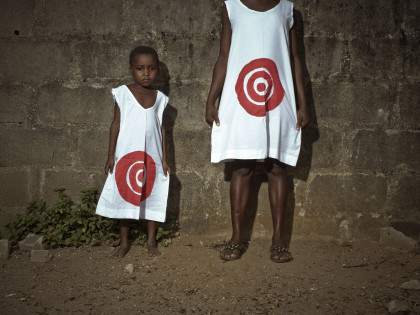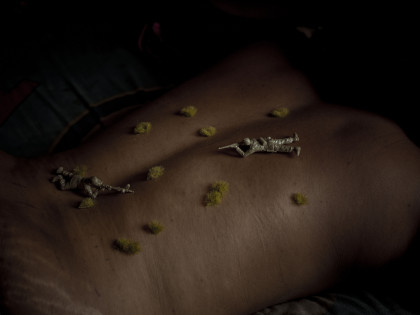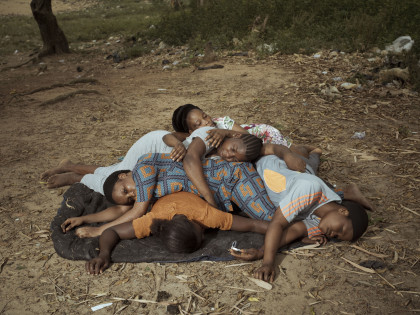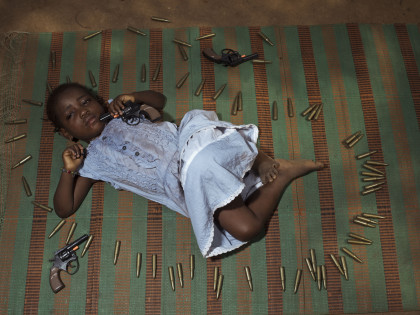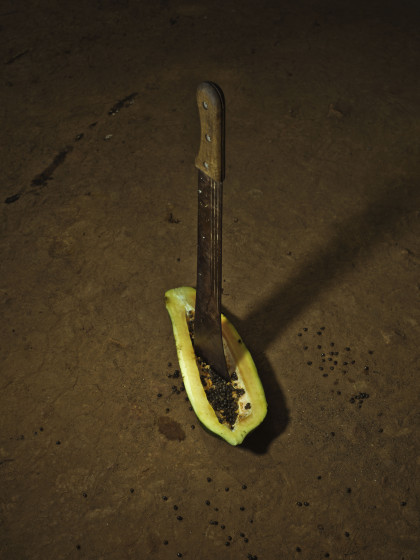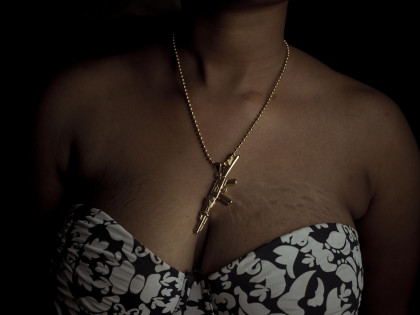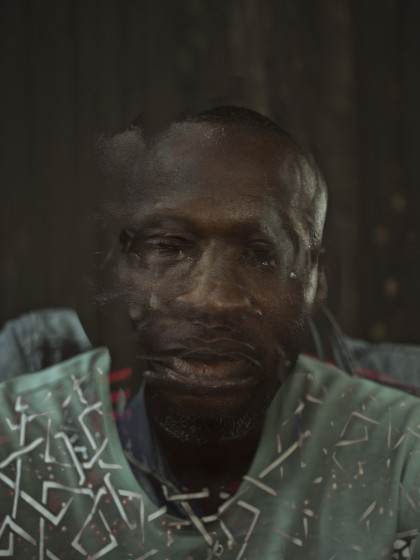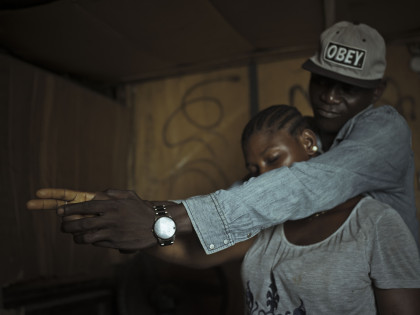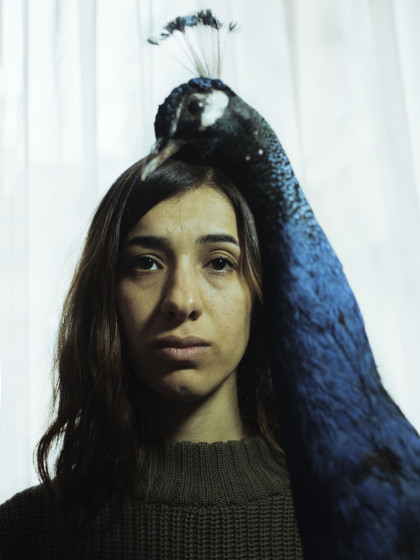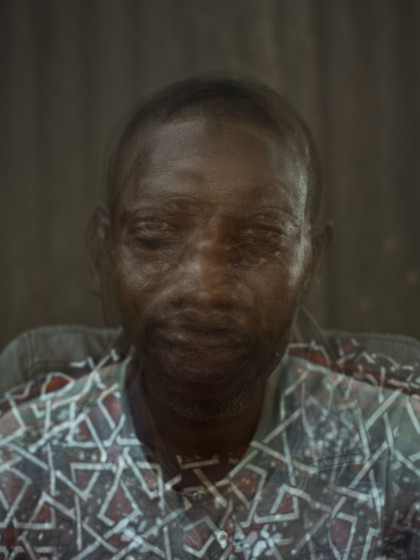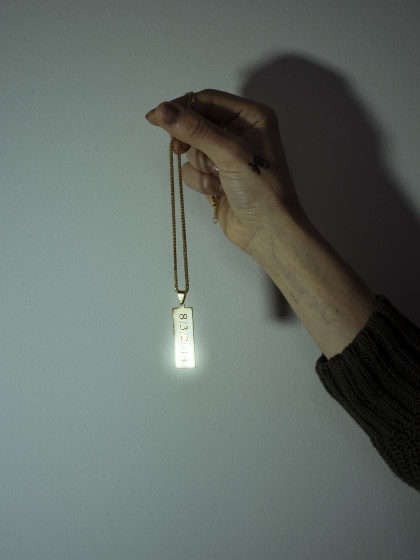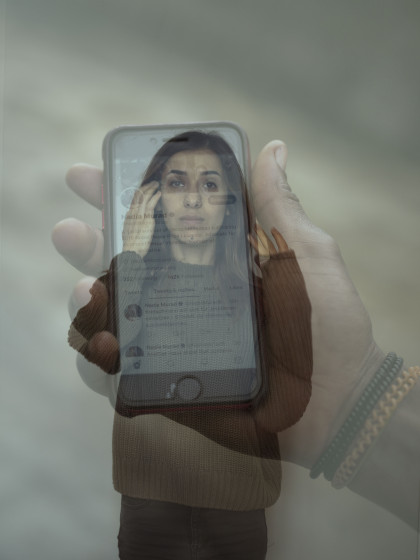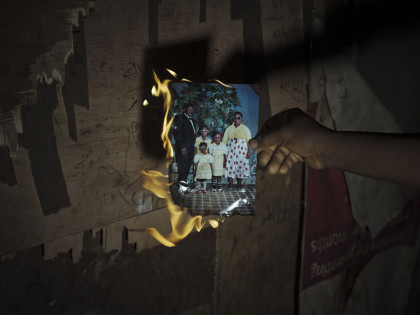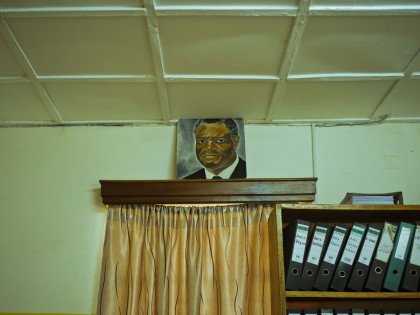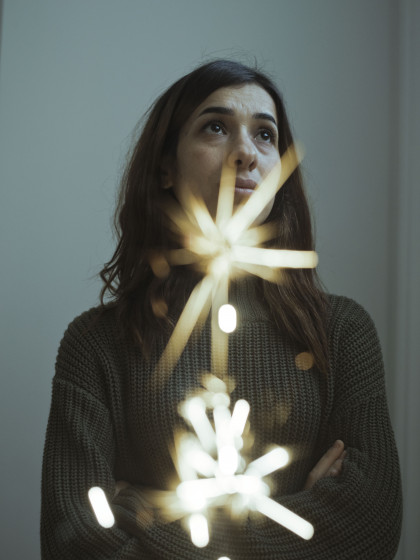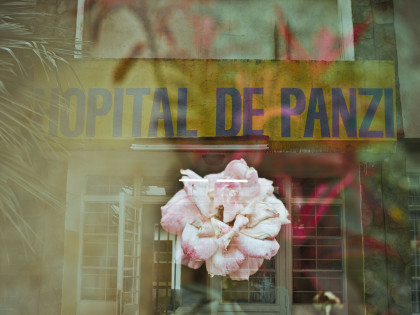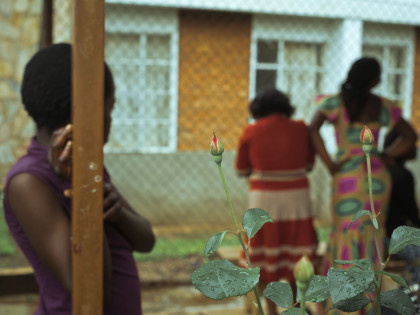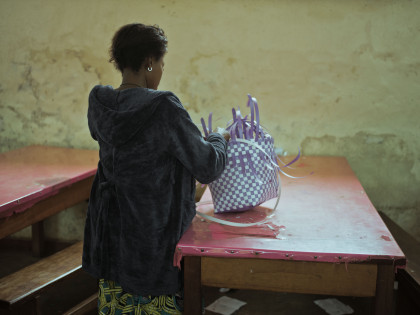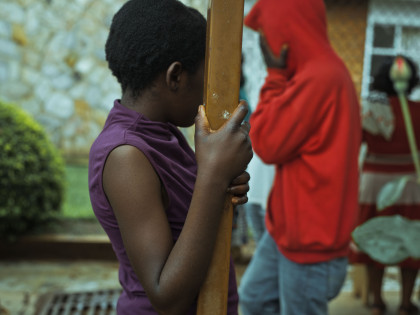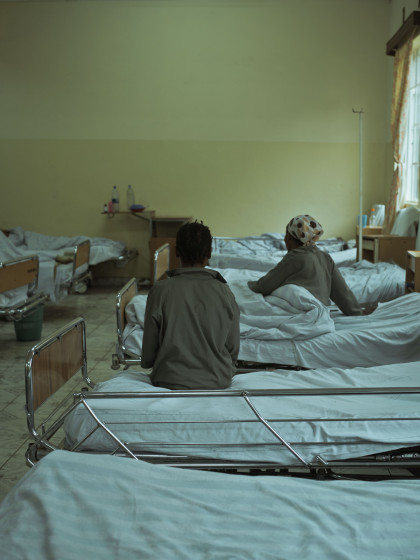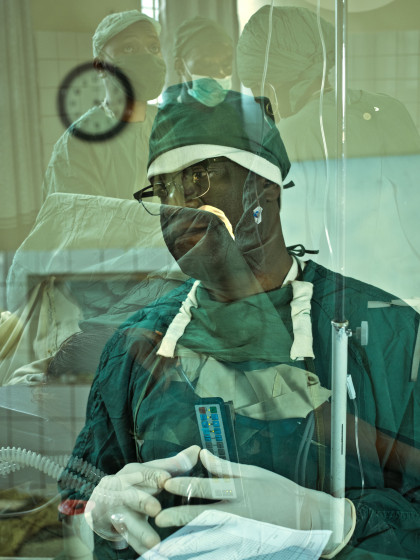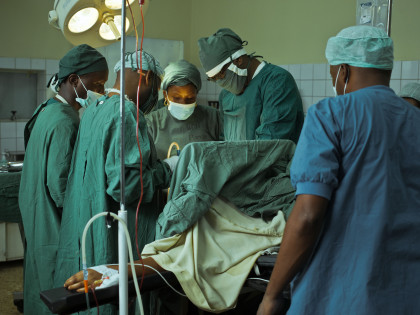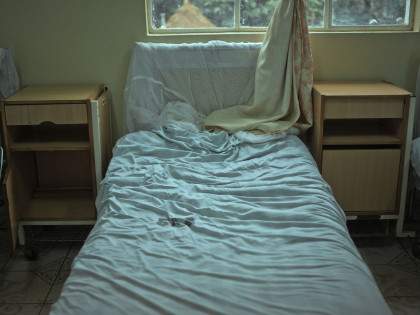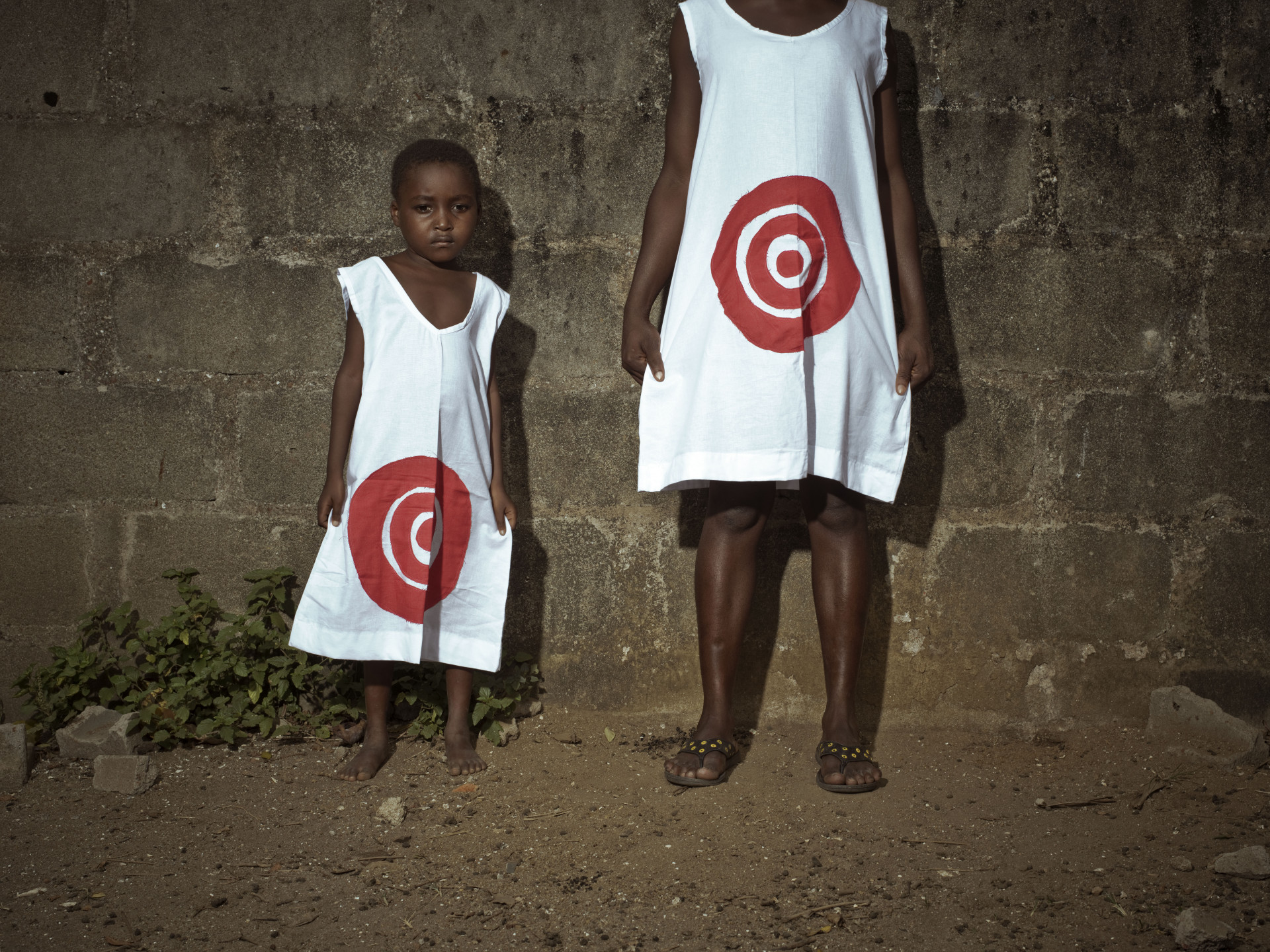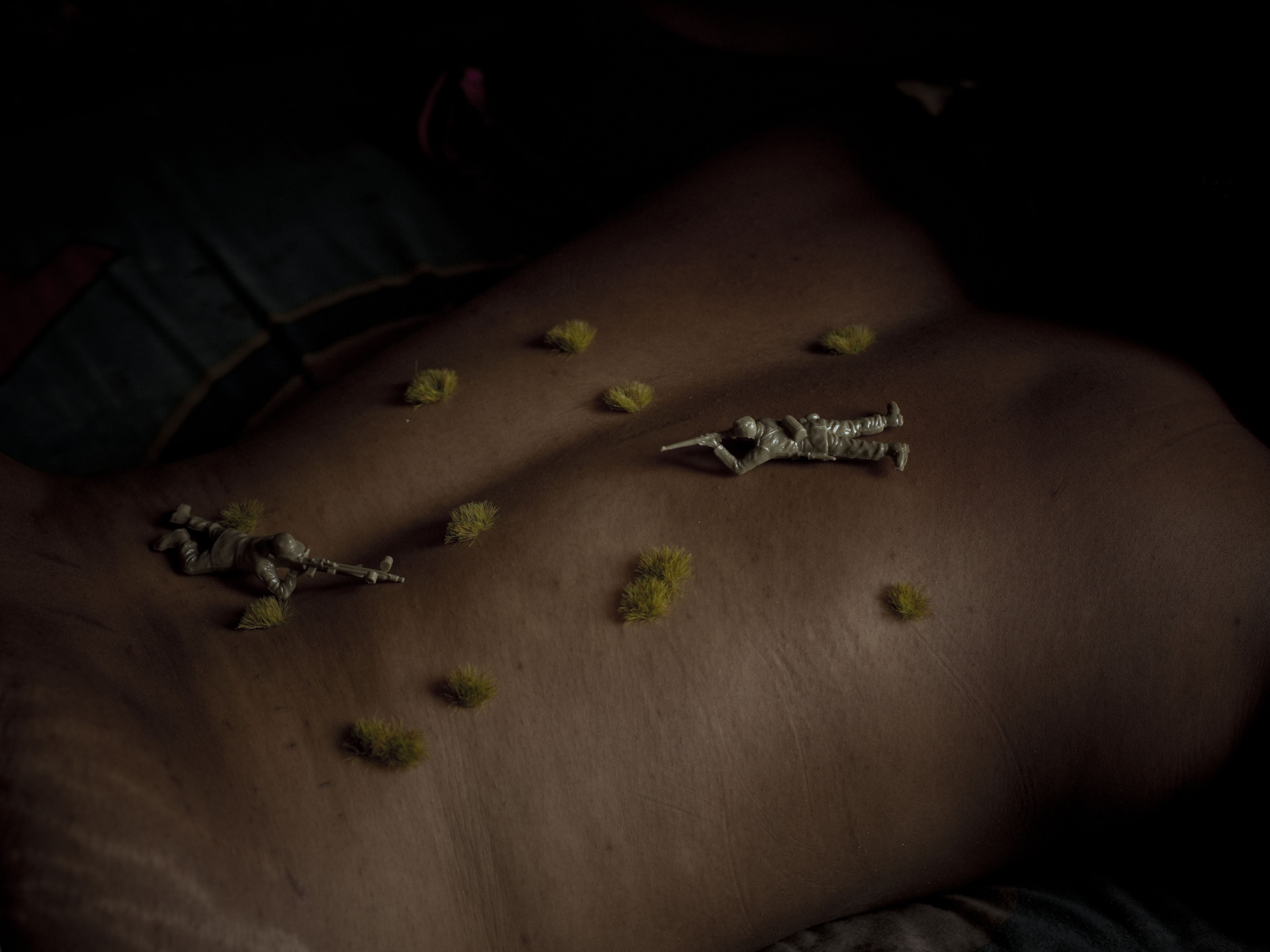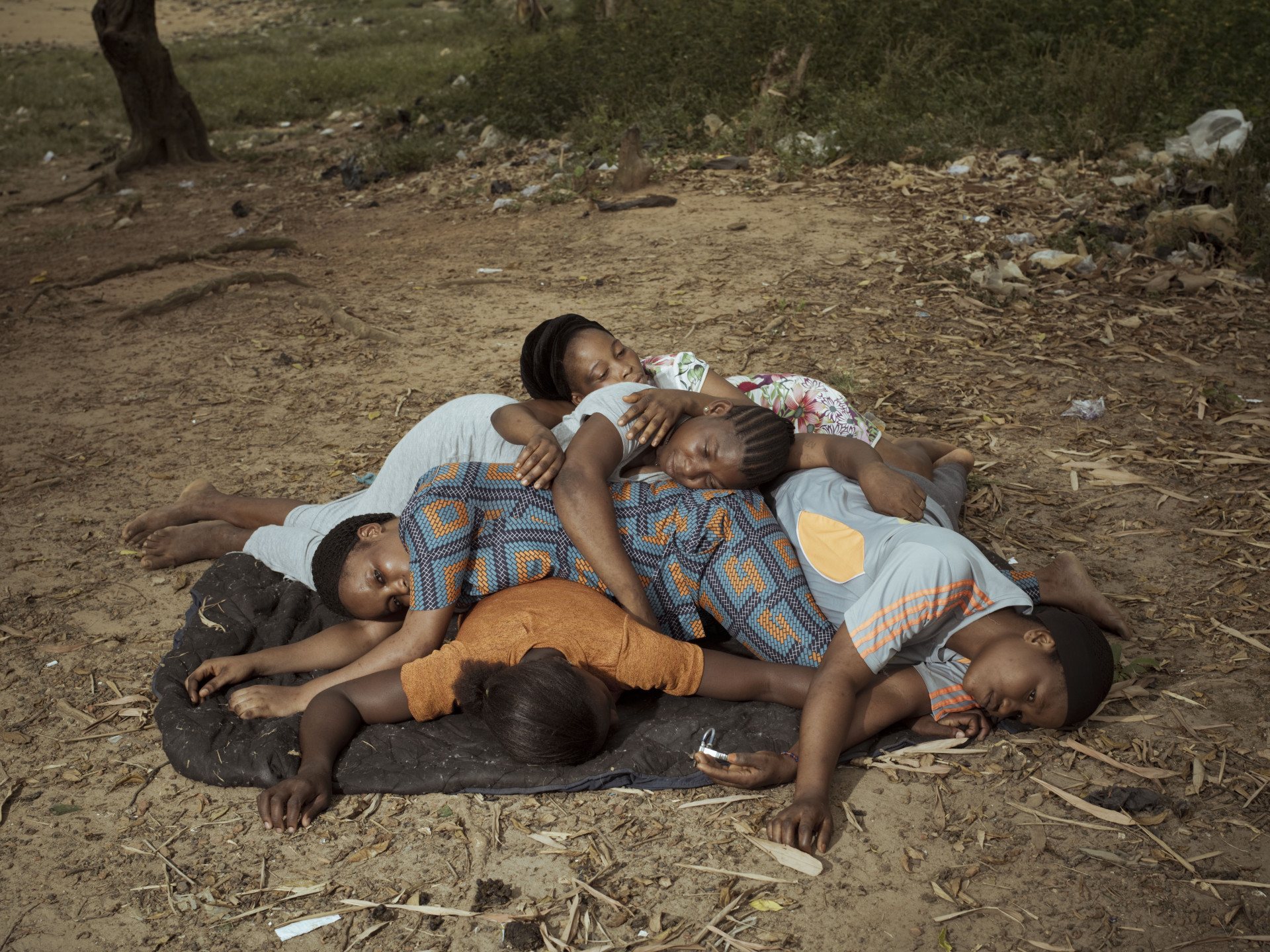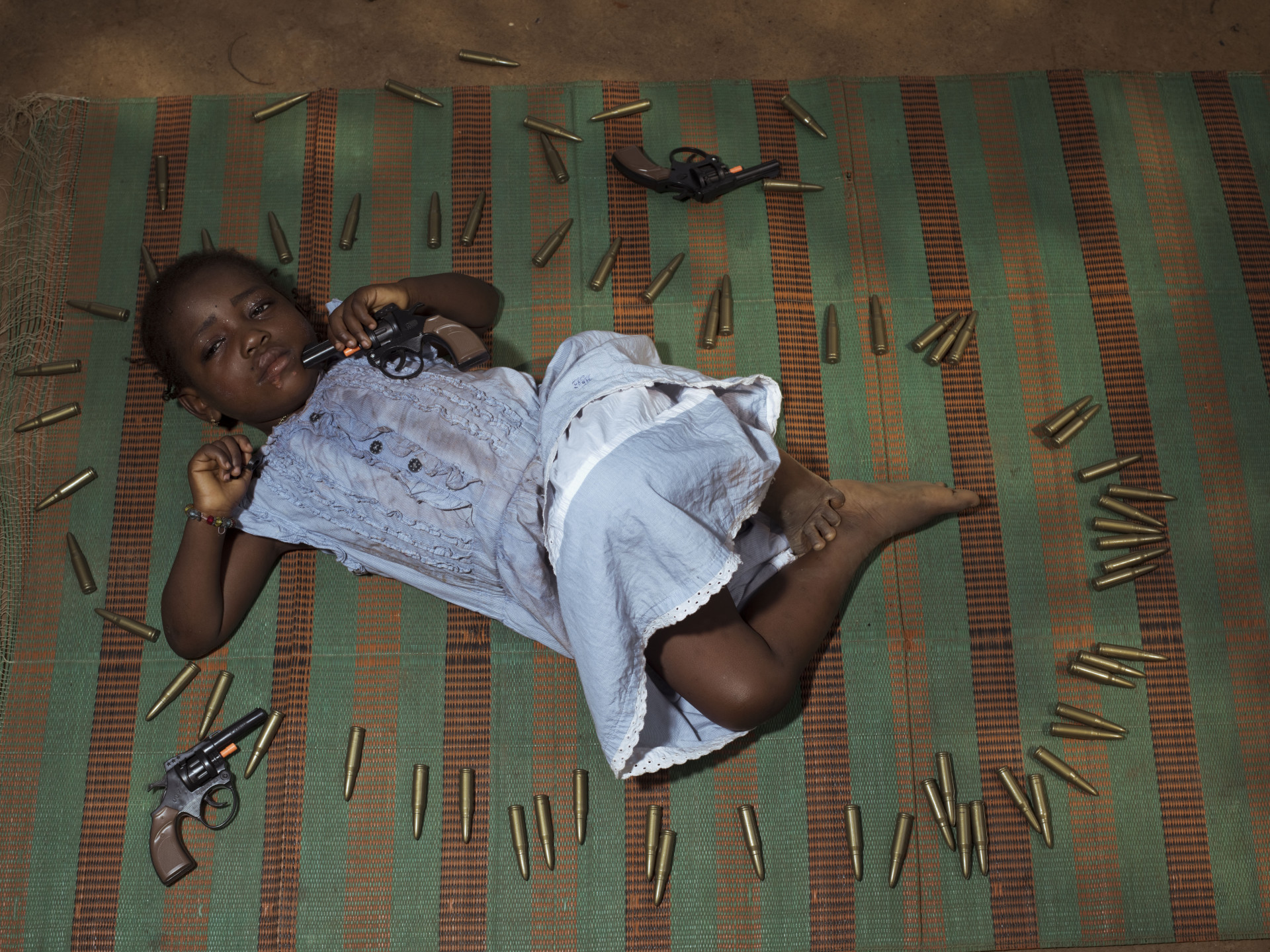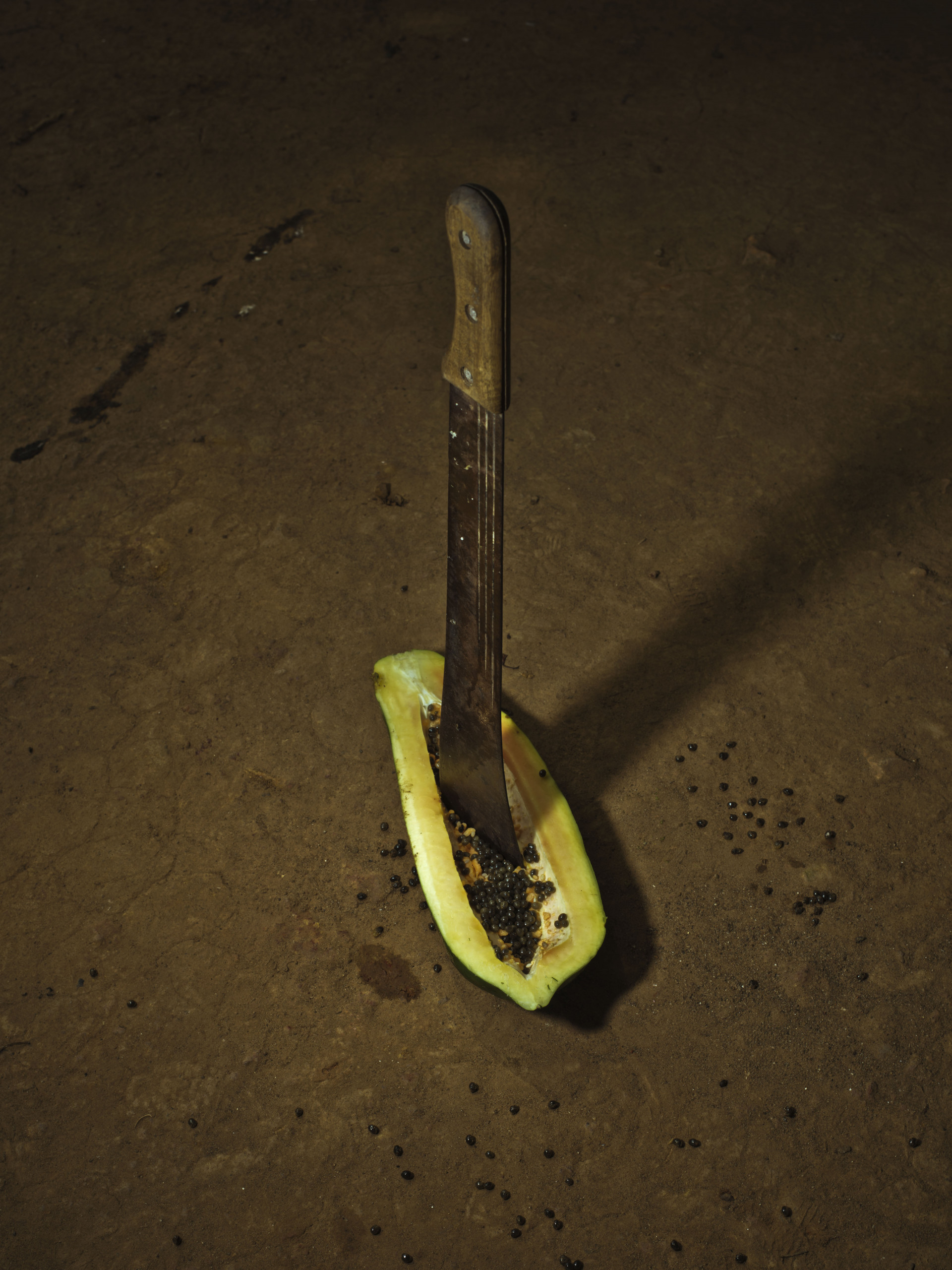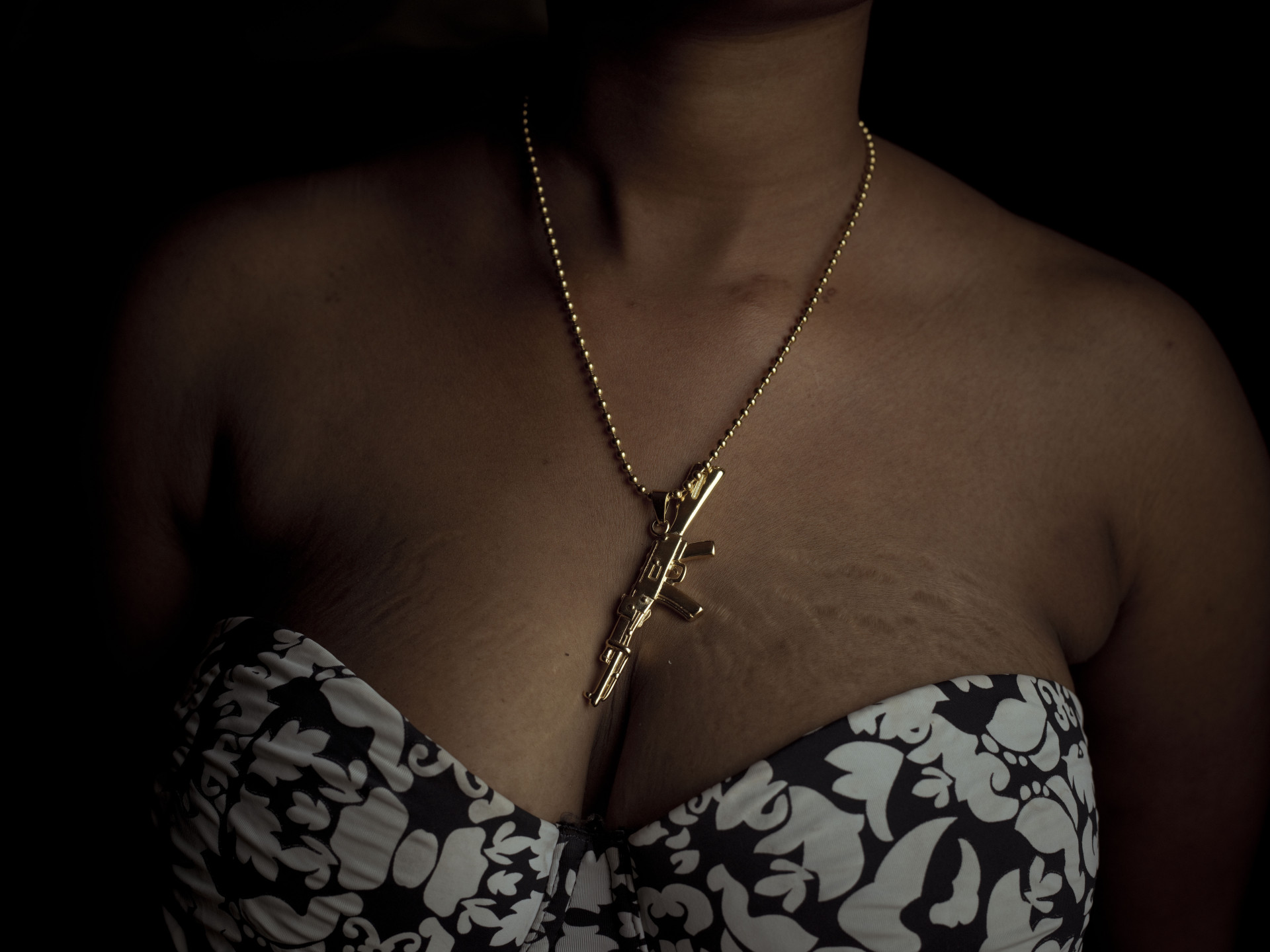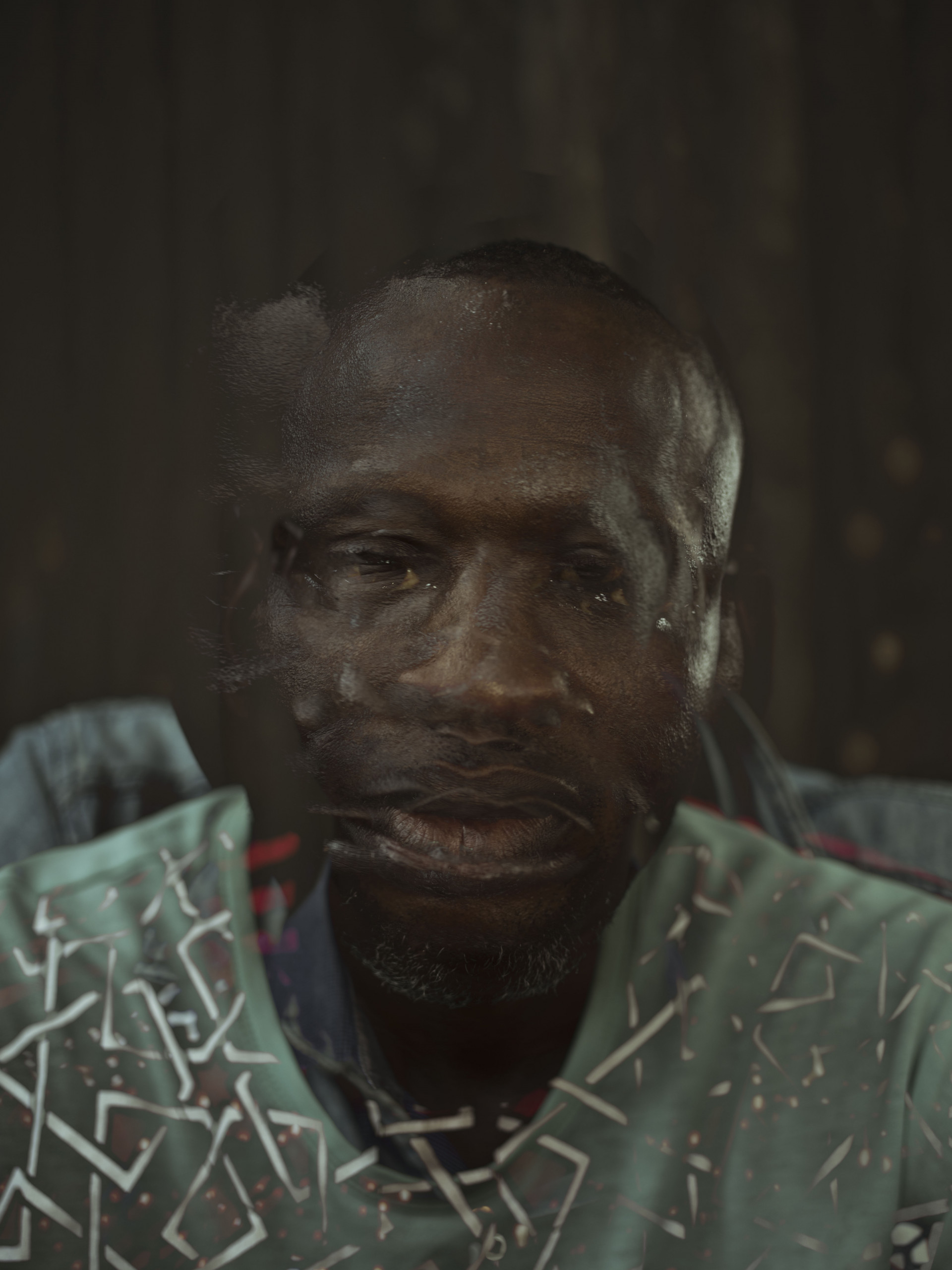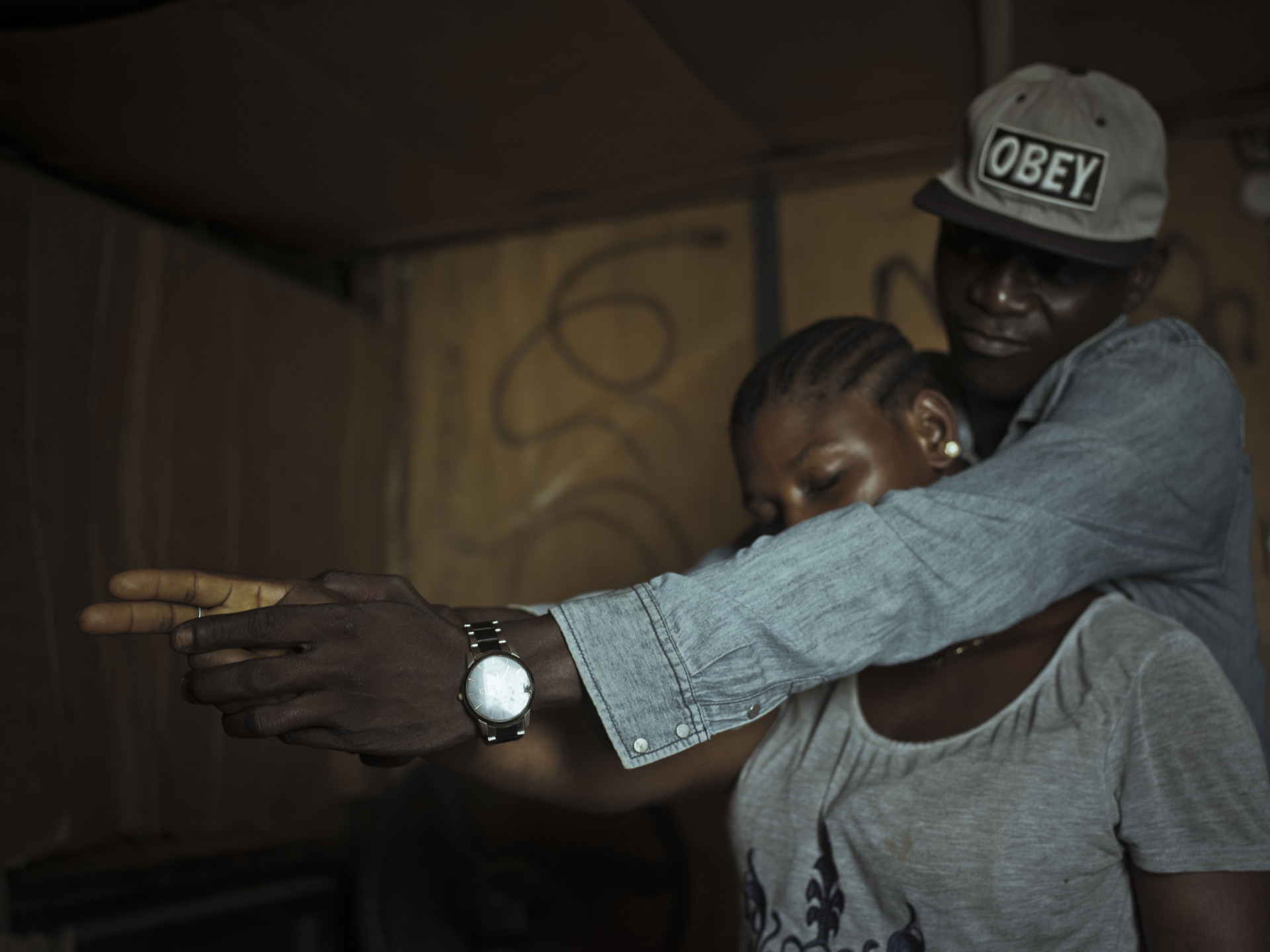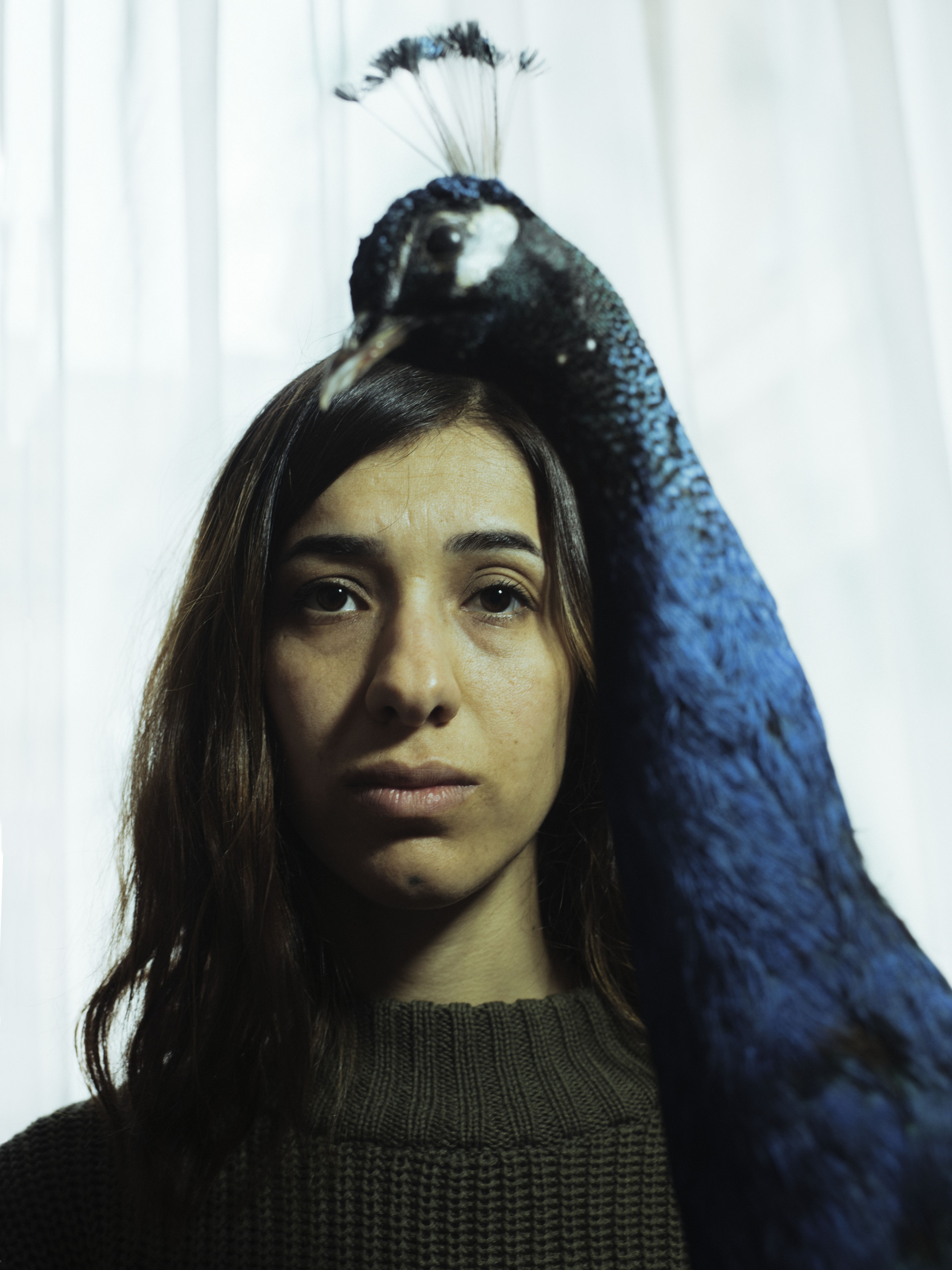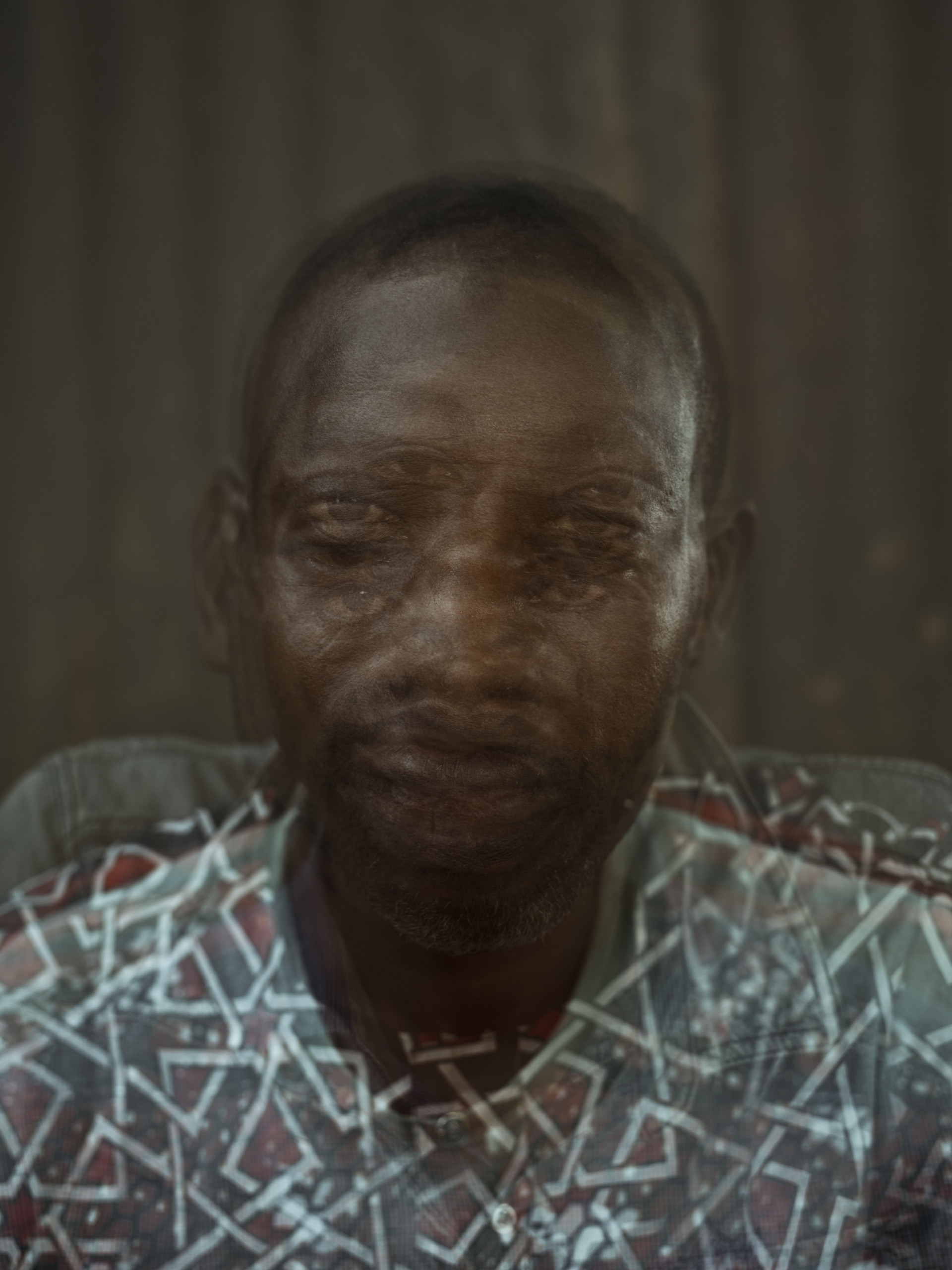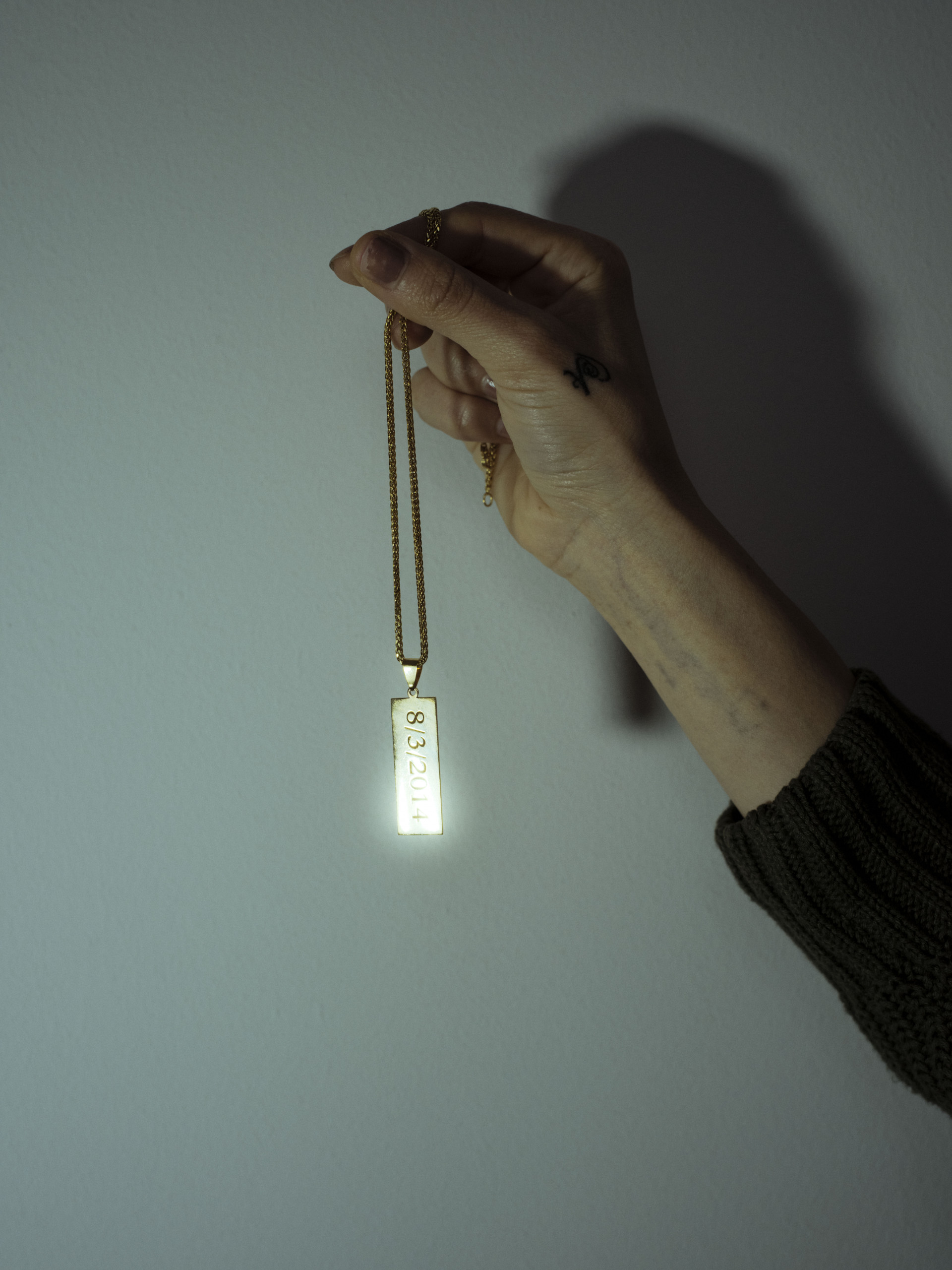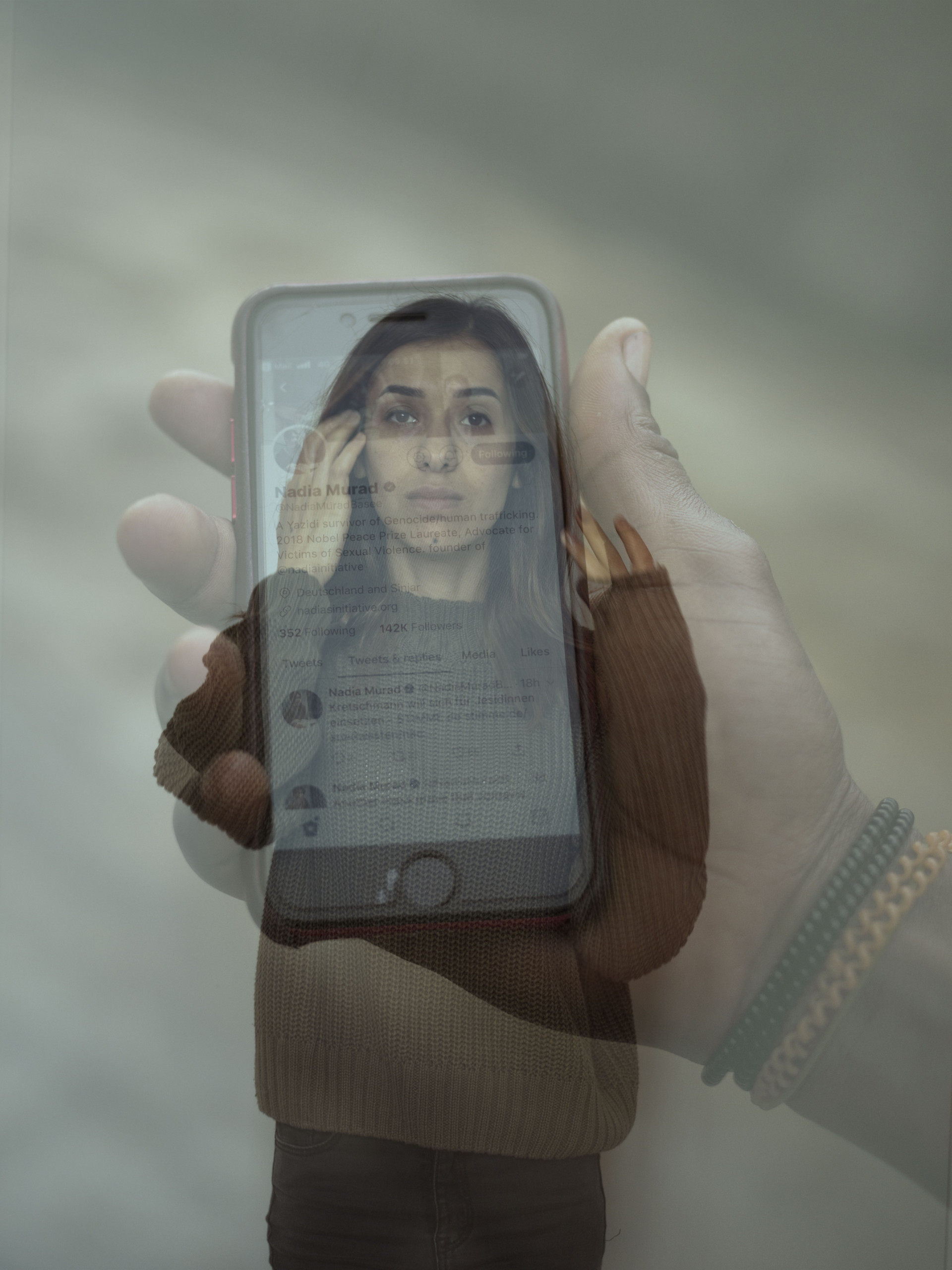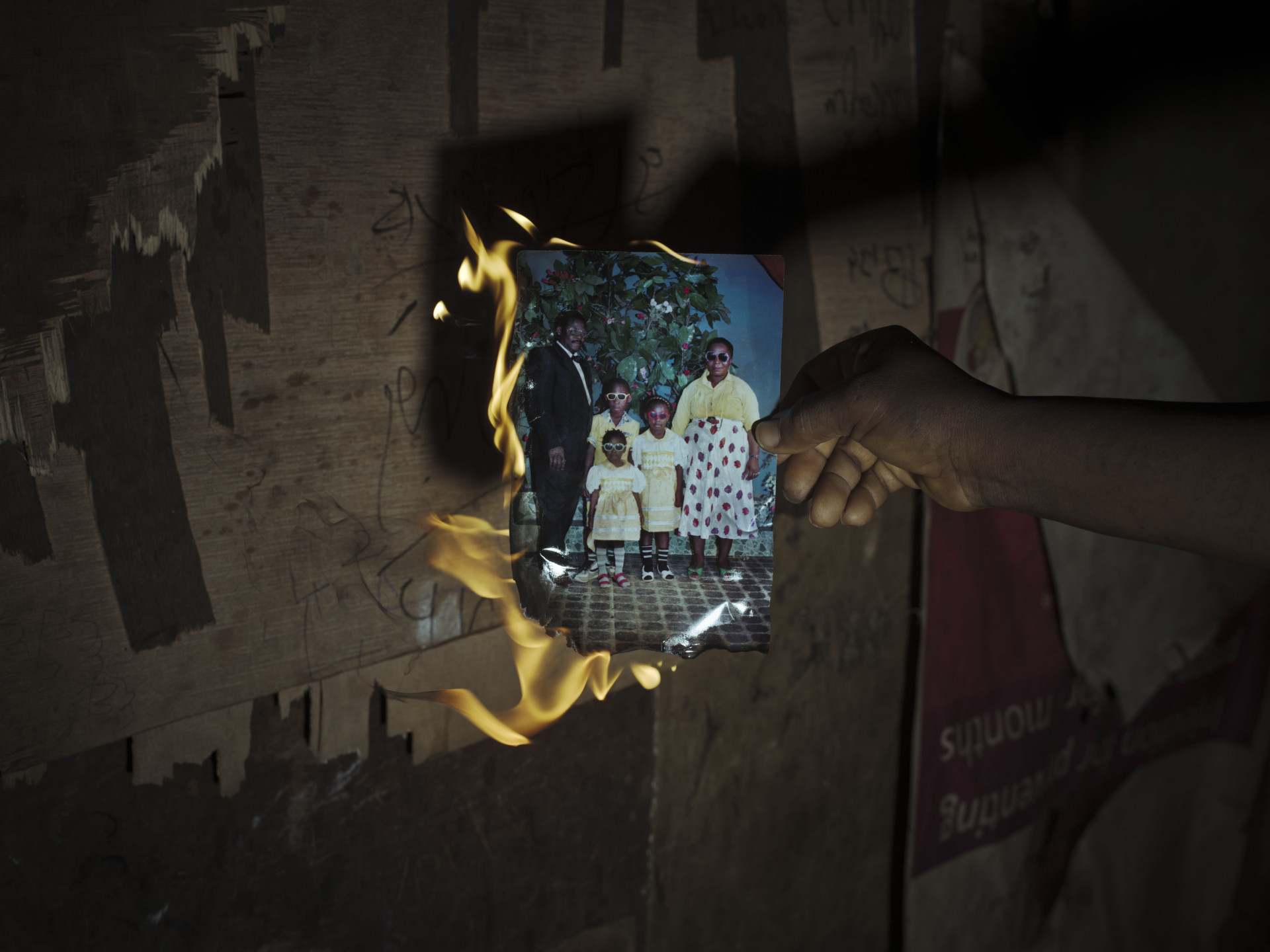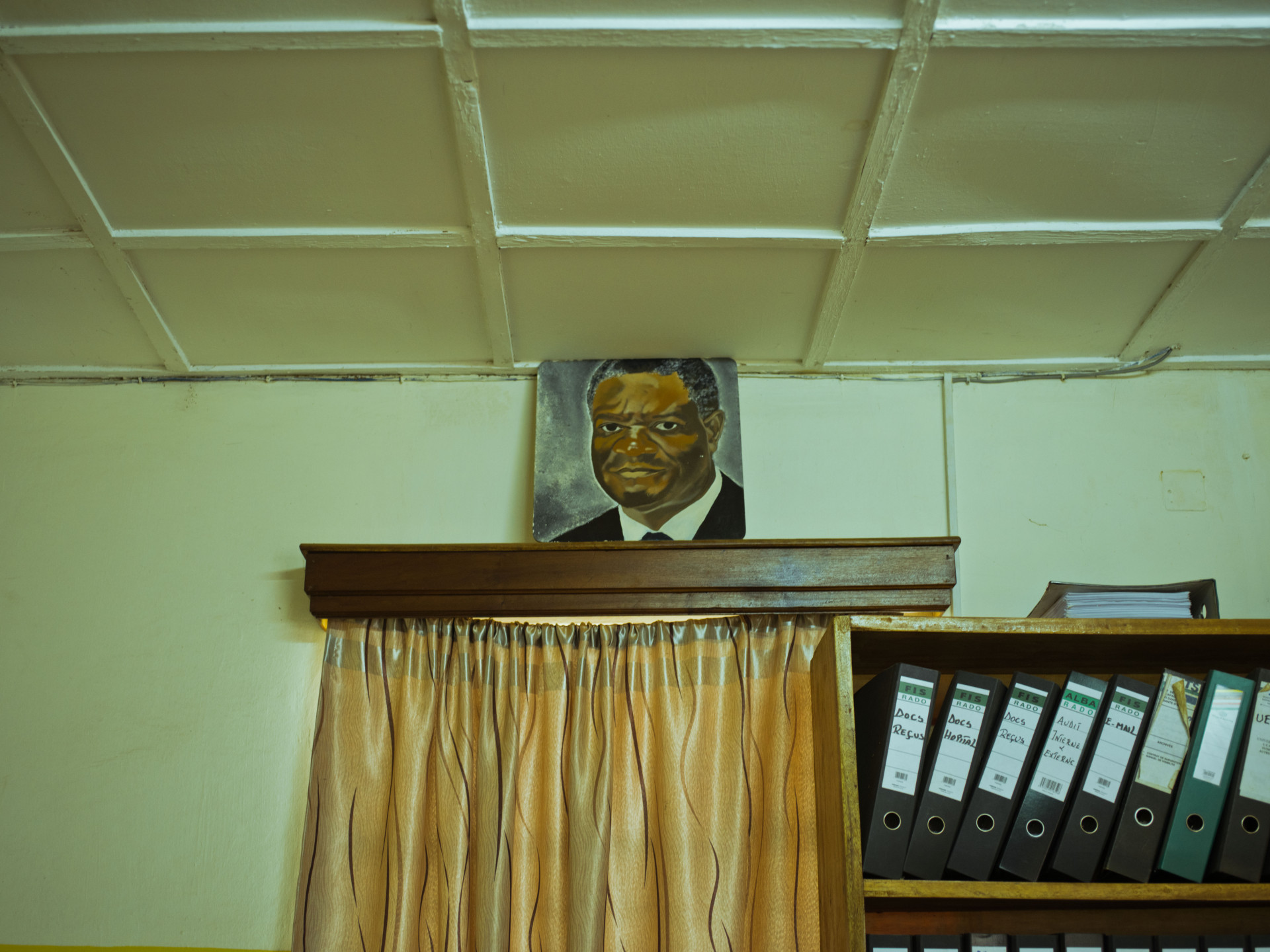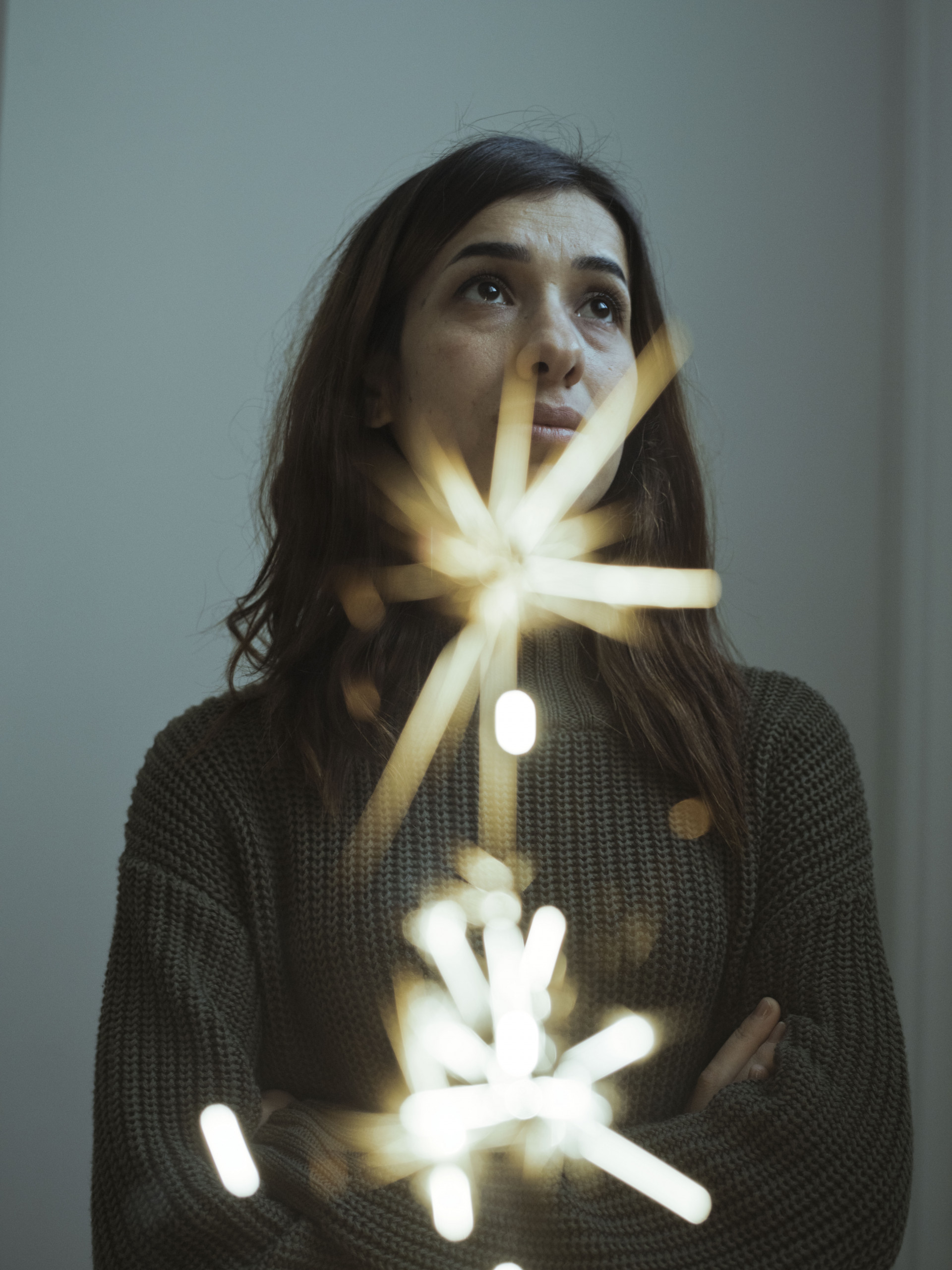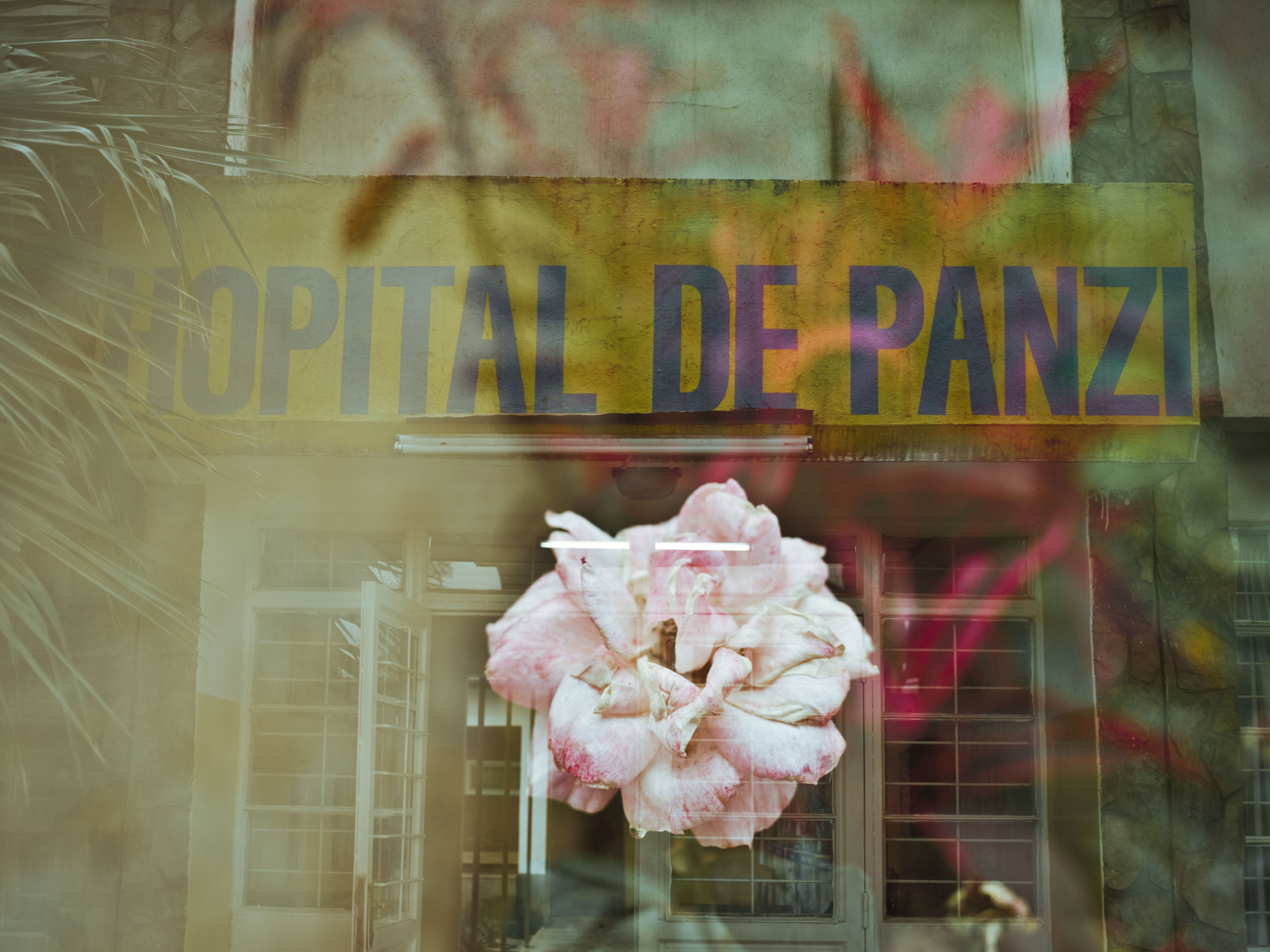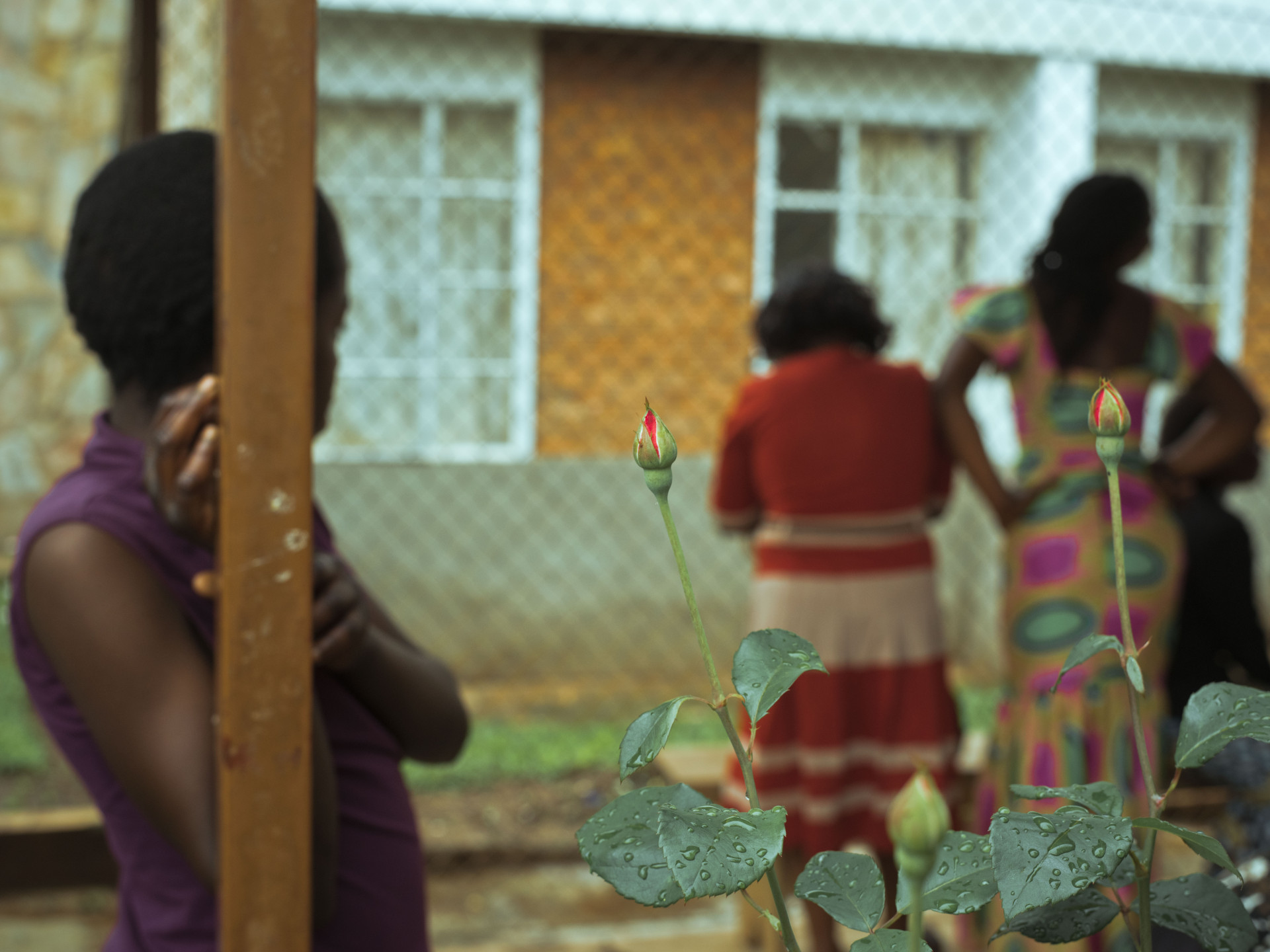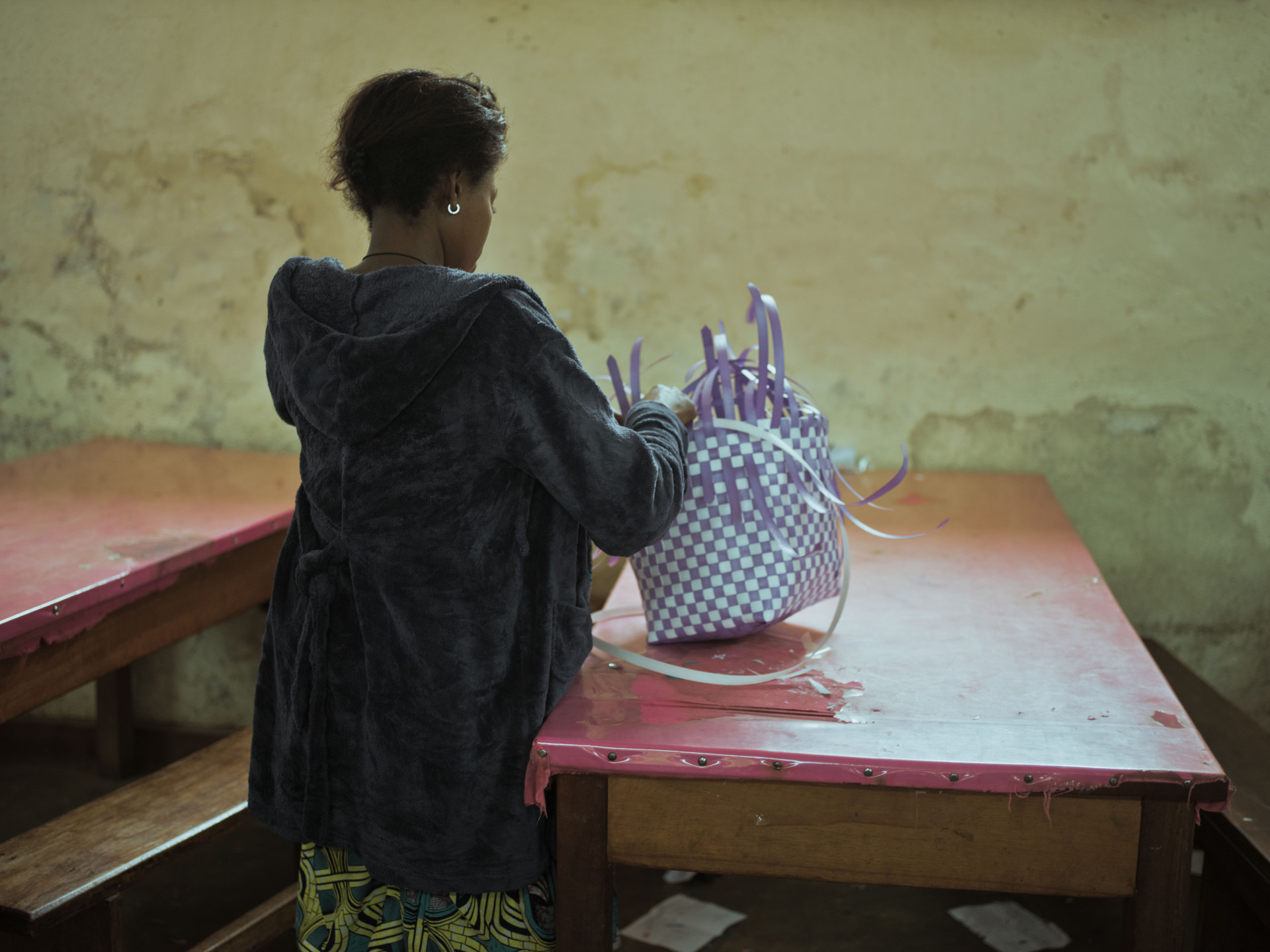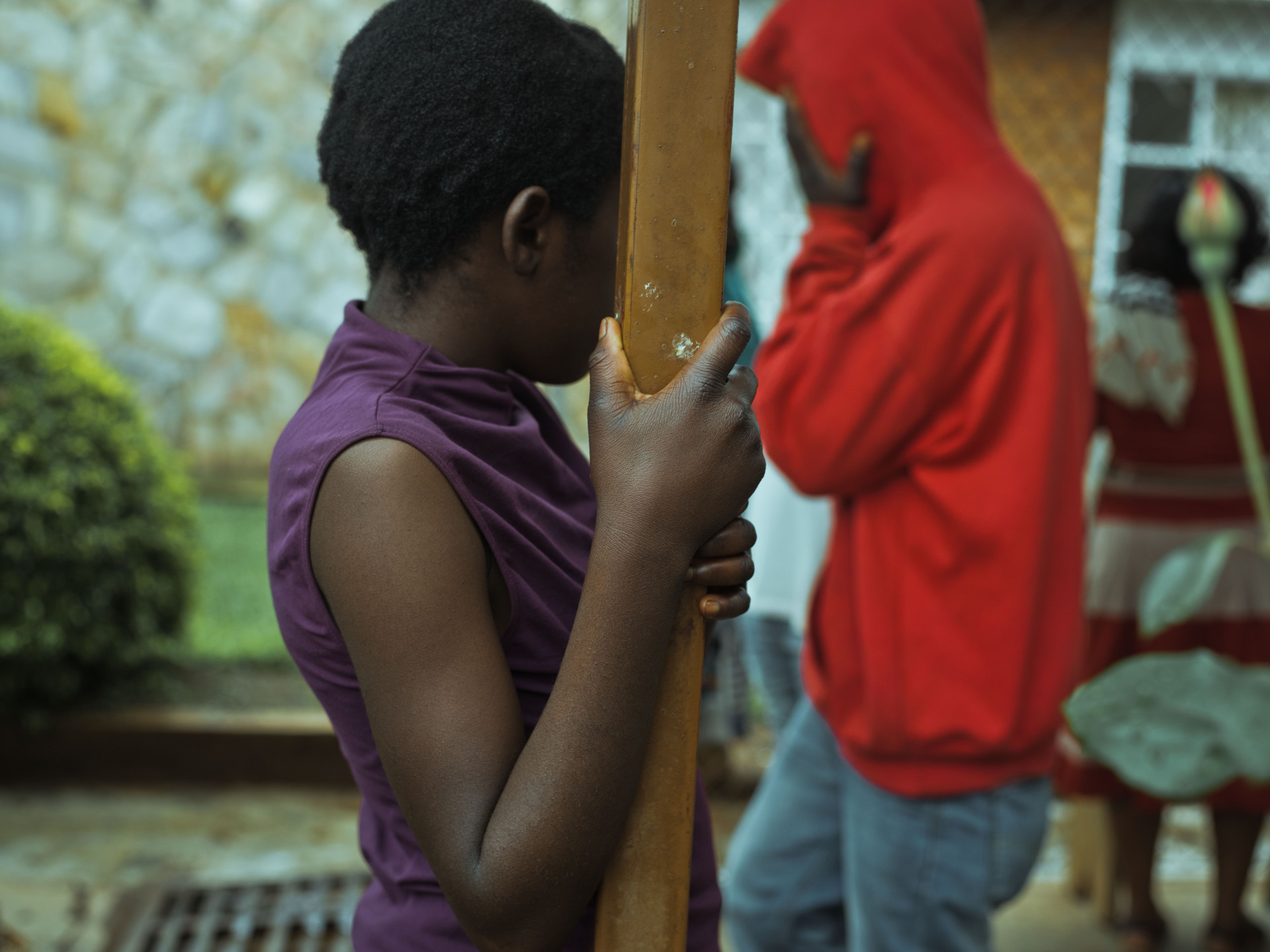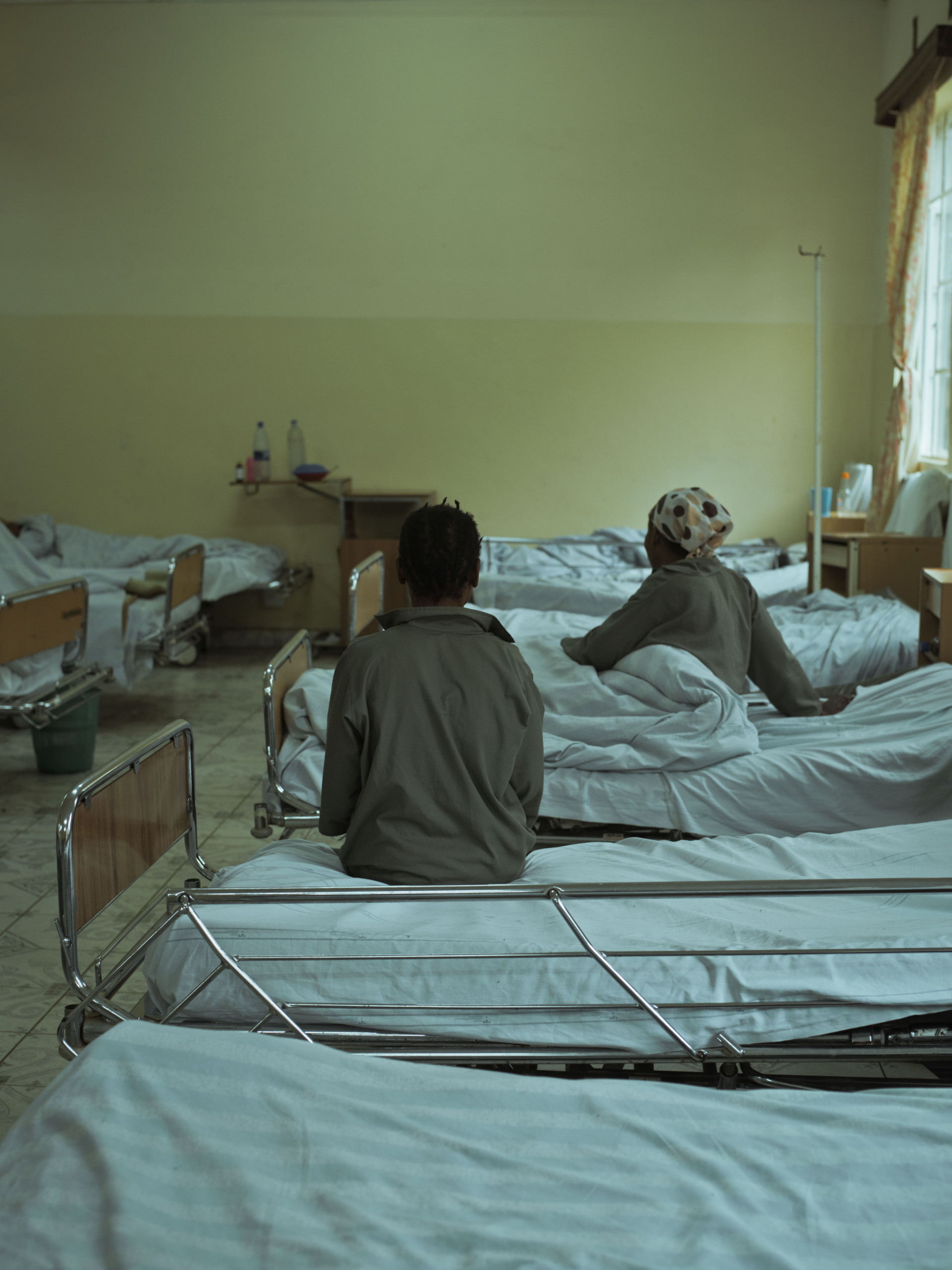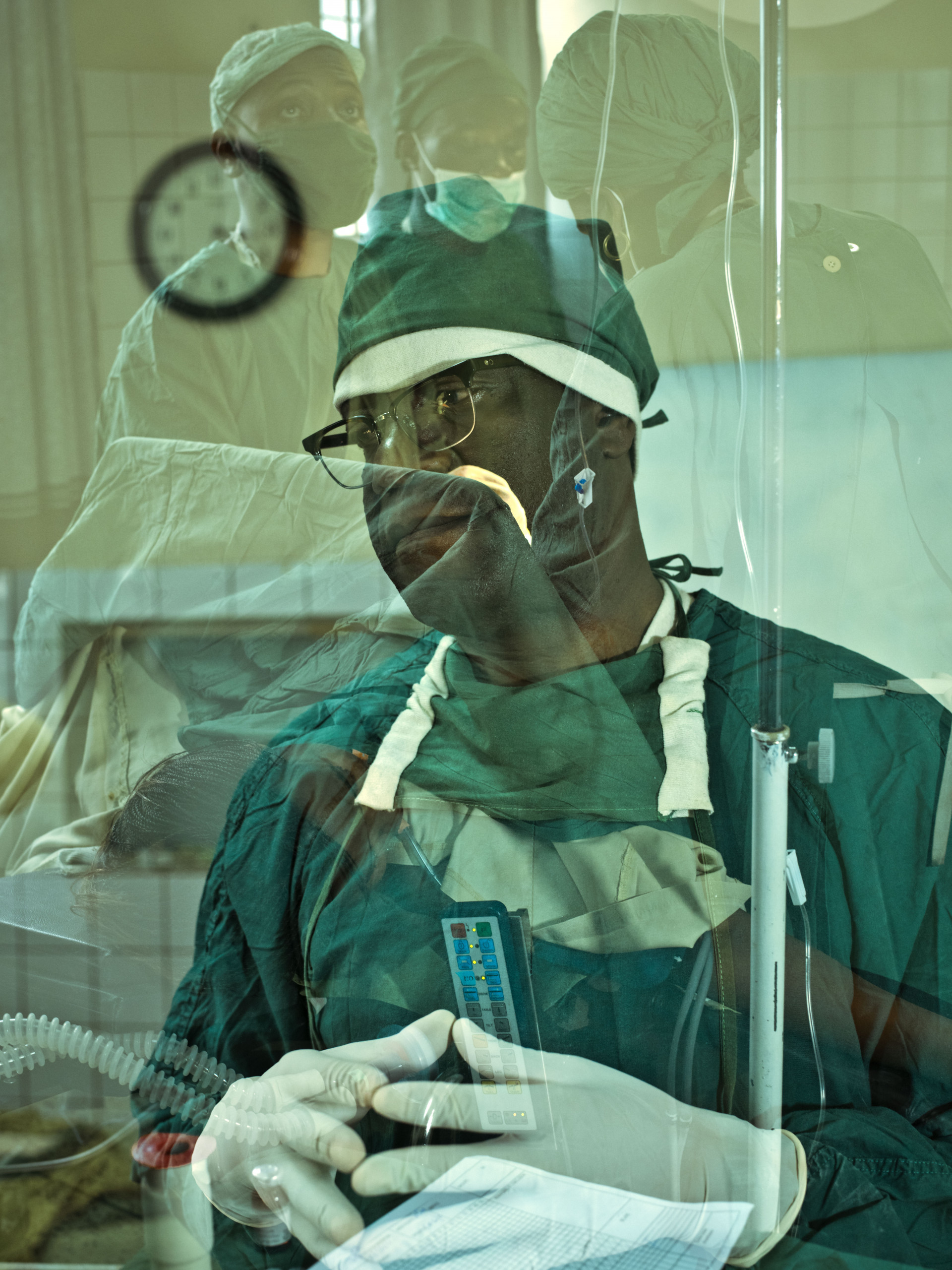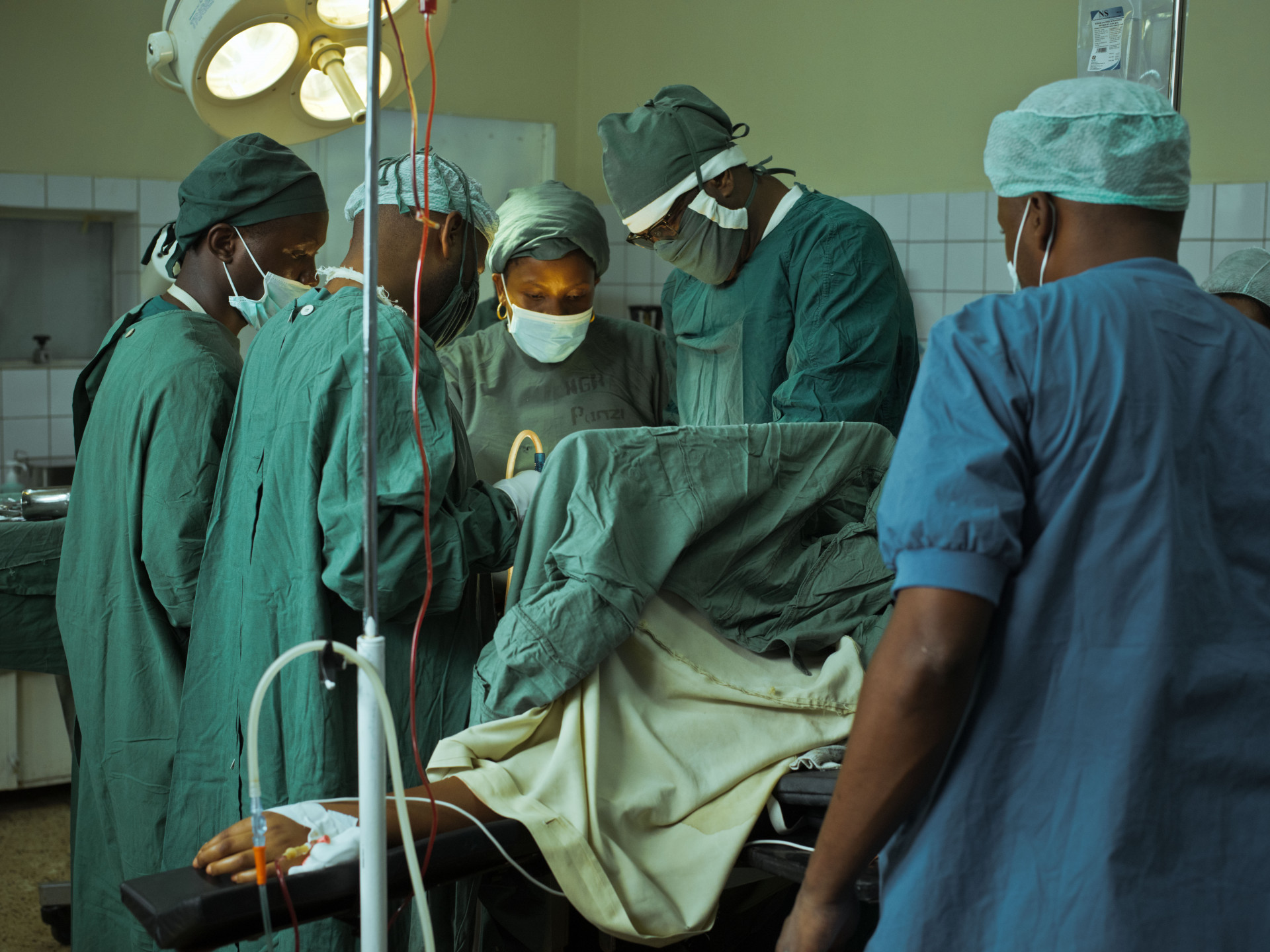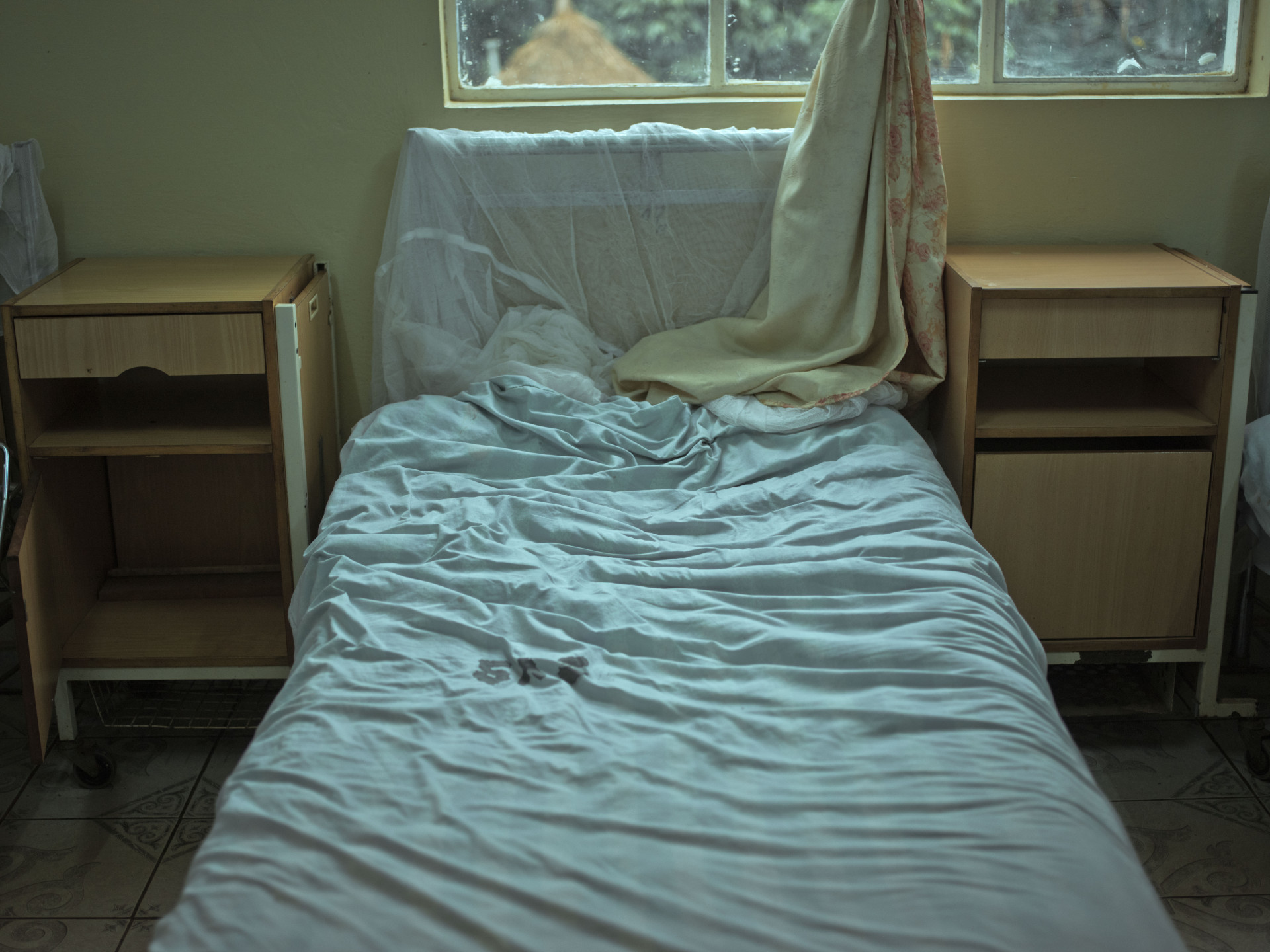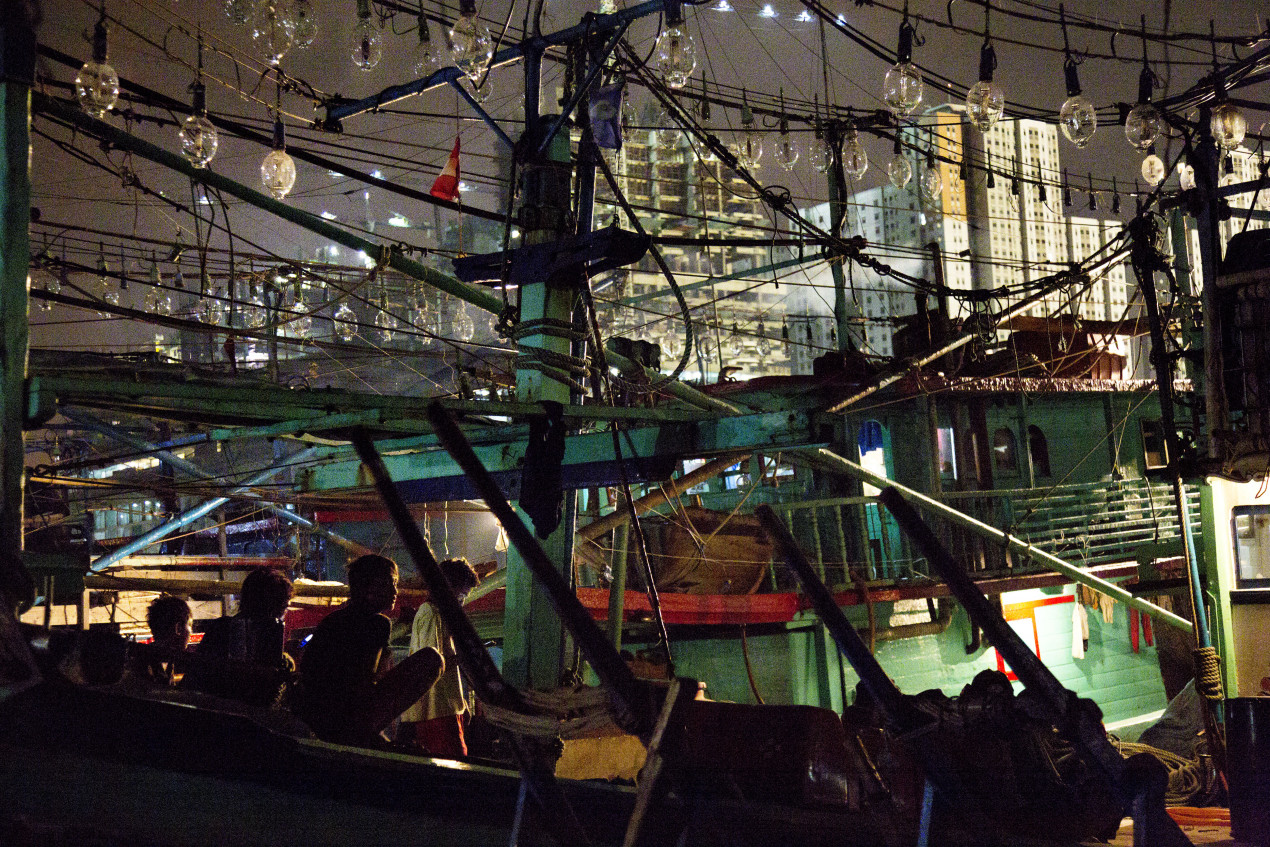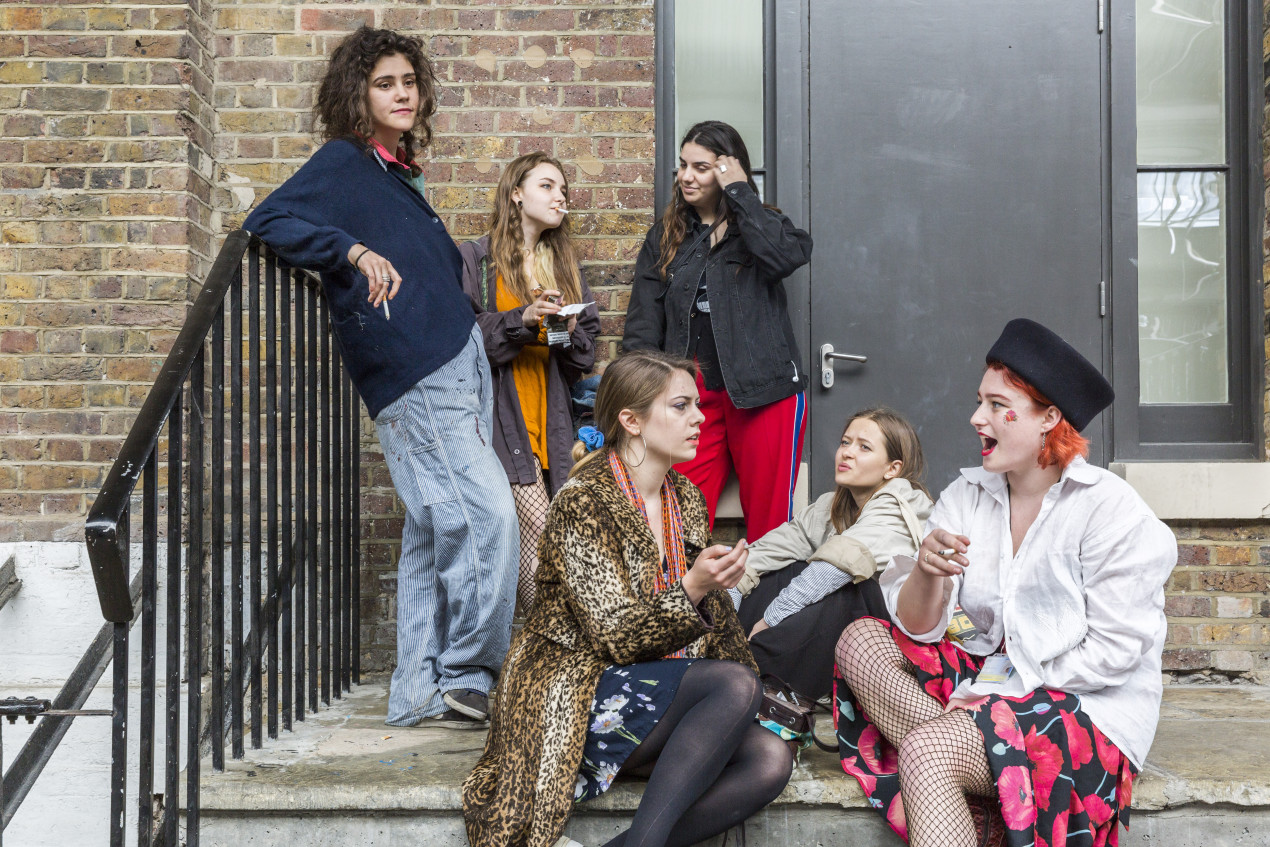“We don´t kill women and girlsâ€. They told me. They said they would only rape us. Then five of them held me down and forced me to watch as three others raped my ten year daughter. Then the men took turns with meâ€.
Woman (33), South Sudanese Civil War (2013-)
© Cristina de Middel | Magnum Photos
“Others male detainees and I were raped with sticks and bottles. I still experience pain when sitting. I fled to a neighbouring country, but I did not find safety there. As gay man, I know I am still at risk.â€
Man (27), Syrian Civil War (2011-).
© Cristina de Middel | Magnum Photos
“Daesh divided us up and held a lottery. They wrote our names on pieces of paper. Then the men picked pieces of paper and saw which names were on them. Whoever picked out our names, we now belonged to that manâ€.
Girl (17), Human Rights Abuses and War Crimes by IS in Iraq (2014-)
© Cristina de Middel | Magnum Photos
“I gave birth to a baby girl and I hated her very much. I used to look at her and remember what I went through. My daughter is now eight years old. I love her unconditionally. I have asked forgiveness from her.â€
Woman (49), Secind Congo War (1996-).
© Cristina de Middel | Magnum Photos
“It happened to all of us: littel girls, grandmothers. The rules were simple. If you stay calm whenthey are raping you, they won´t beat you. If you resist, they will beat you, or even use the gun inside you.â€
Woman (27), South Sudanese Civil War (2013-).
© Cristina de Middel | Magnum Photos
“The pakistani army was looking for my husband. They broke into our home and dragged him out. One of the soldiers raped me in front of my husband. He was forced to sit and watch, with guns pointed at him.â€
Girl (16), Bangladesh War of Independence (1971).
© Cristina de Middel | Magnum Photos
“Now I am afraid of men. For me now a man isa destroyer. My husband, the man I loved, left me. And a man that I did not know destroyed me. Now I want to stay alone. There is no question of a man being next to me.â€
Woman (46), Second Congo War (1996-).
© Cristina de Middel | Magnum Photos
“You stop thinking about escaping or seeing your family again. Your body no longer belongs to you. The only thing that exists is rape and the numbness that follows when you accept that this is what your life has become.â€
Nadia Murad
© Cristina de Middel | Magnum Photos
Nadia Murad mother to her children: “Tell Tawusi Melek what is bothering you. If you are worried about someone you love, tell him that, or if you are scared of something. These are the things that Tawusi Melek can help you withâ€. The Yazidis have been persecuted throughout their history because of their religion. The most important figure in Yazidi faith, the Peacock Angel Tawusi Melek, has been incorrectly interpreted by Muslim anf Christians as an incarnation of the devil. Because of this, Yazidis have been perceived as infidels.
© Cristina de Middel | Magnum Photos
“Now I am afraid of men. For me now a man isa destroyer. My husband, the man I loved, left me. And a man that I did not know destroyed me. Now I want to stay alone. There is no question of a man being next to me.â€
Woman (46), Second Congo War (1996-).
© Cristina de Middel | Magnum Photos
3 August 2014 marked the start of what is considered to be the 74th genocide of the Yazidis. Nadia Murad, then 21, was among the thousands of women and children taken captive and held as slaves by the Islamic State (IS). After she managed to escape, she was taken in by a family who helped her leave the IS controlled area. It is estimated that over 3,000 Yazidis women and children are still missing or remain captives of IS.
© Cristina de Middel | Magnum Photos
Despite living in a conservative society, she was always known for protesting against injustice. “I was the youngest of eleven siblings and a girl. Still, I spoke freely and was used to being heard.†Today, people around the world are listening to Murad. Through meetings with world leaders and international activism, she is fighting on behalf of Yazidis, persecuted minorities and survivors of sexual violence and human trafficking. She uses social media actively to publicize her work and the issues she feels strongly about.
© Cristina de Middel | Magnum Photos
“I was washing and washing and their smell did not go away. Imagine, they did it to me on the marital bed.â€
Woman (38), Yugoslav Wars (1991-2001).
© Cristina de Middel | Magnum Photos
DRC. Panzi. 2018.
“When the women have healed and they let me know that they are able to urinate again - it´s like they have been born again. I can really say that it gives me hope and happiness in what I am doing.â€
Denis Mukwege
© Cristina de Middel | Magnum Photos
It is hard for Nadia Murad to recount her story of abuse over and over again. But her trauma has also meant a new start with new purposes. This os how her lawyer, Amal Clooney, described her in the Un in 2016: “Nadia refuses to be silenced. She has instead defied all the labels that life has given her: Rape victim, Slave, Refugee. She has instead created new ones: Survivor, Yazidi leader, Woman´s advocate, Nobel Prize Nominee, United Nations Goodwill Ambassador.â€
© Cristina de Middel | Magnum Photos
DRC. Panzi. 2018.
Panzi hospital treats survivors of sexual violence and those with complex gynaecological injuries in South Kivu, DR Congo. The Northeastern part of the country is conflict-ridden over natural resources and by sexual violence, and the hospital also provides mobile clinics that reach out to patients in remote villages.
© Cristina de Middel | Magnum Photos
DRC. Panzi. 2018.
“people think that after being raped you are just a victim. I have learned that life goes on after rape. Rape is not the end. It is not a fixed identity.â€
Woman, Panzi patient.
© Cristina de Middel | Magnum Photos
DRC. Panzi. 2018.
The Panzi hospital is part of the Panzi Foundation, and is guided by a four-pillar holistic healing model:
1- Physical care provided by the hospital.
2- Psychological support by the Maison Dorcas aftercare center.
3- Community reintegration by the city of Joy rehabilitation center.
4- Legal assistance by the Panzi Legal Clinic.
© Cristina de Middel | Magnum Photos
DRC. Panzi. 2018.
The hospital admits hundreds of patients every month, ranging from babies to grandmothers, many with devastating injuries. Patients receive both somatic and psychological care.
© Cristina de Middel | Magnum Photos
DRC. Panzi. 2018.
Panzi hospital´s wards and corridors are full of women. Their bodies are damaged and waiting to be repaired. Denis Mukwege is calm and focused when approaching his patients.
© Cristina de Middel | Magnum Photos
DRC. Panzi. 2018.
Dr. Denis Mukwege is a symbol of steadfast resistance, both in DR Congo and in international arenas. The doctor and his colleagues continue to repair damaged bodies and souls in a violent conflict that still rages on. Despite the horror of his daily work, Mukwege finds hope and humanity in the healing of survivors.
© Cristina de Middel | Magnum Photos
DRC. Panzi. 2018.
Since 1999 Panzi has treated over 48,000 survivors of sexual violence. Most patients are woman, but boys and men also receive treatment.
© Cristina de Middel | Magnum Photos
DRC. Panzi. 2018.
The most common injury treated at Panzi is fistula, resulting from birth or rape. A fistula is an opening between the vagina and the anus, which causes urinary and faecal incontinence. This type of injury often involves stigmatization due to odor and ideas of impurity.
© Cristina de Middel | Magnum Photos
